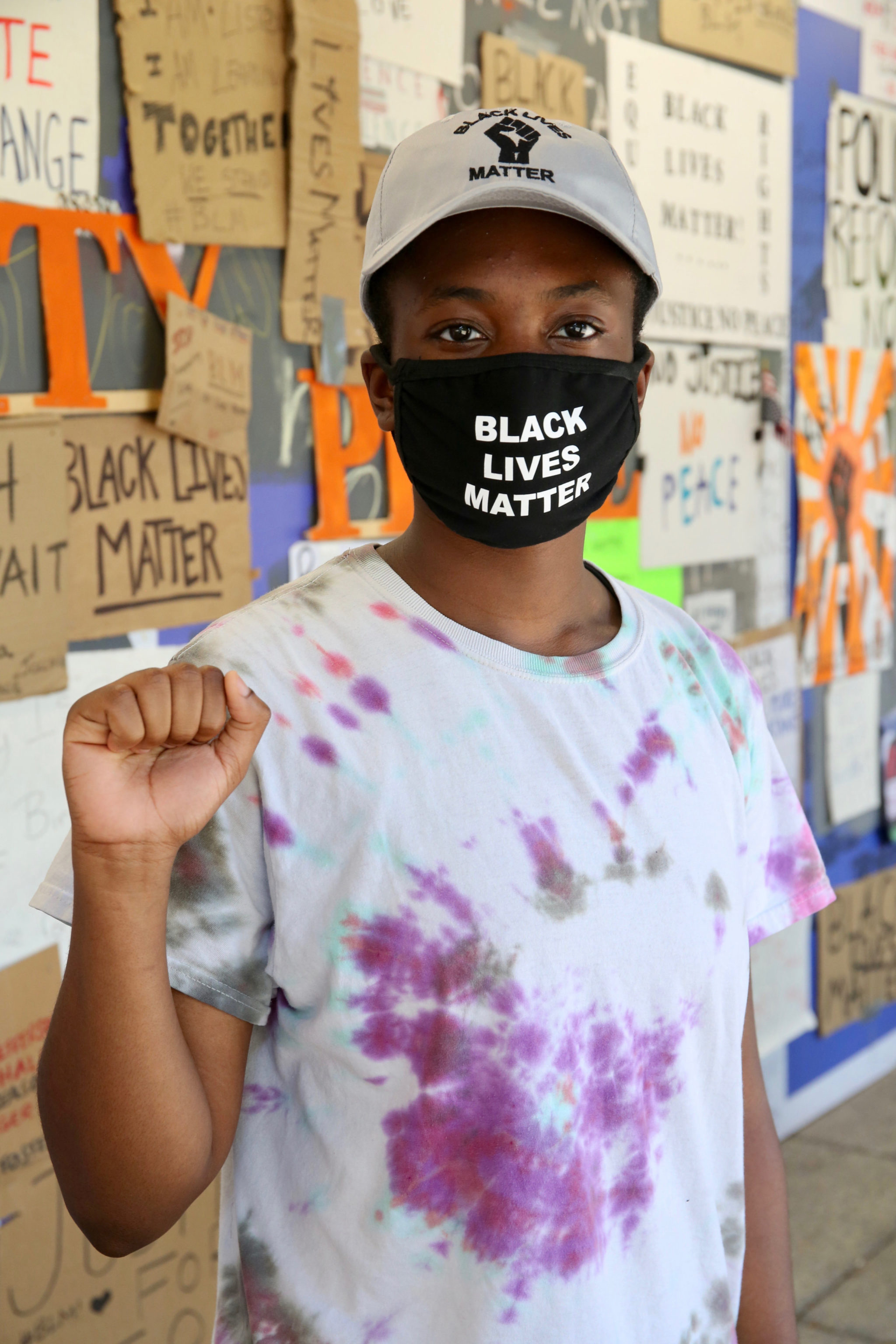Someday, we’ll know whether the street protests around the US that followed the police killing of George Floyd accomplished anything concrete: law-enforcement reform, legal changes, measures to address structural racism. But in front of the White House and across the region in May and June, the fact of the demonstrations was the story. And it was a surprising one. Over the course of those weeks, the scenes evolved, growing larger, more unified, more diverse, and possibly more upbeat as the days progressed. The end of the story may not yet be written, but the action on our streets, and the reckoning that came with it, has already provided Washingtonians with a heady sense of history in the making. Here’s what and who it looked like.
Click an image to open a slideshow or scroll through.
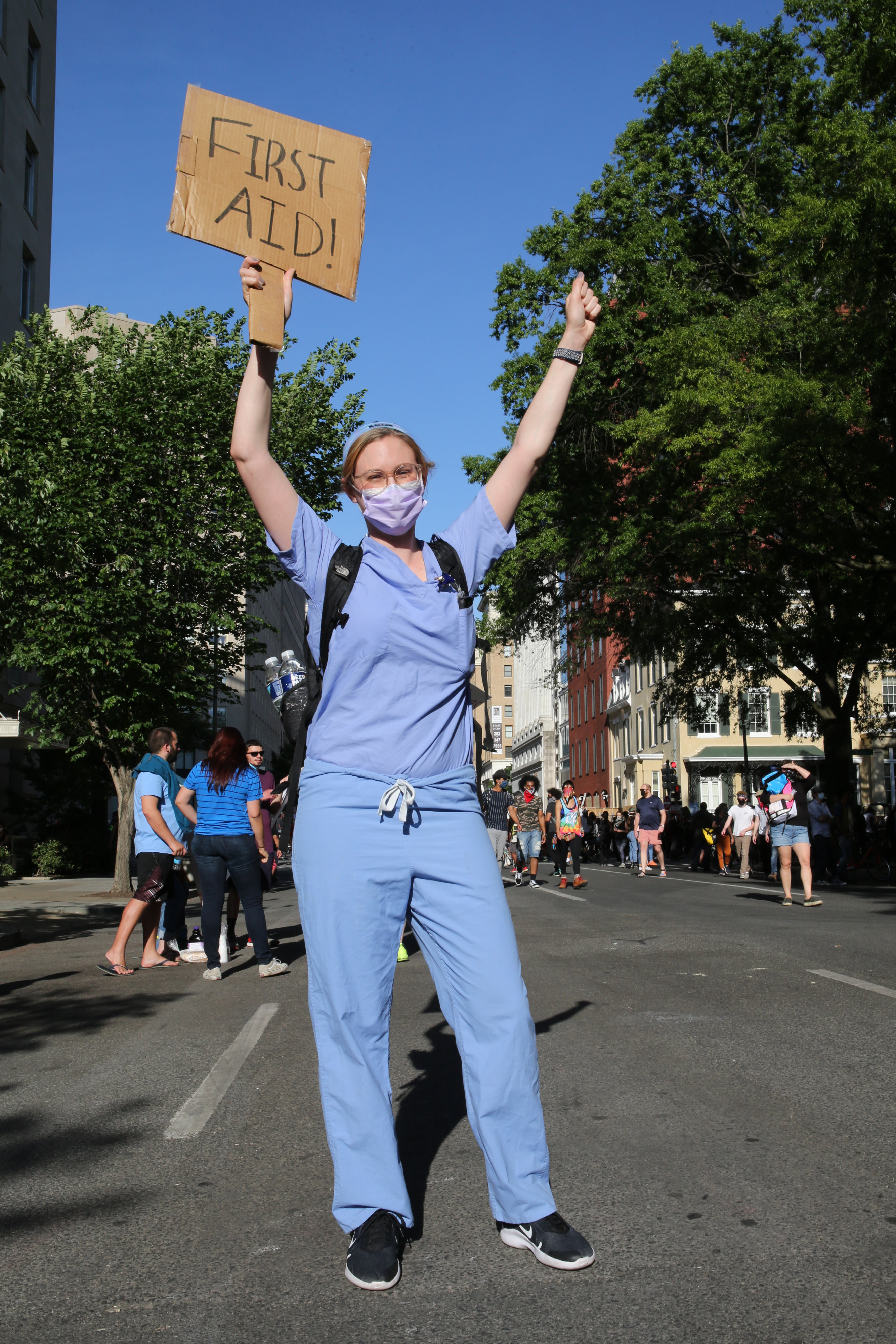
Isabelle Riley, pediatric resident, 27
“This event has formed because of years of suppressed rage about institutionalized racism. In medicine we are not exempt, something that we see in emergency rooms and in every facet of medicine. I am here to support people of color and to provide first aid.”
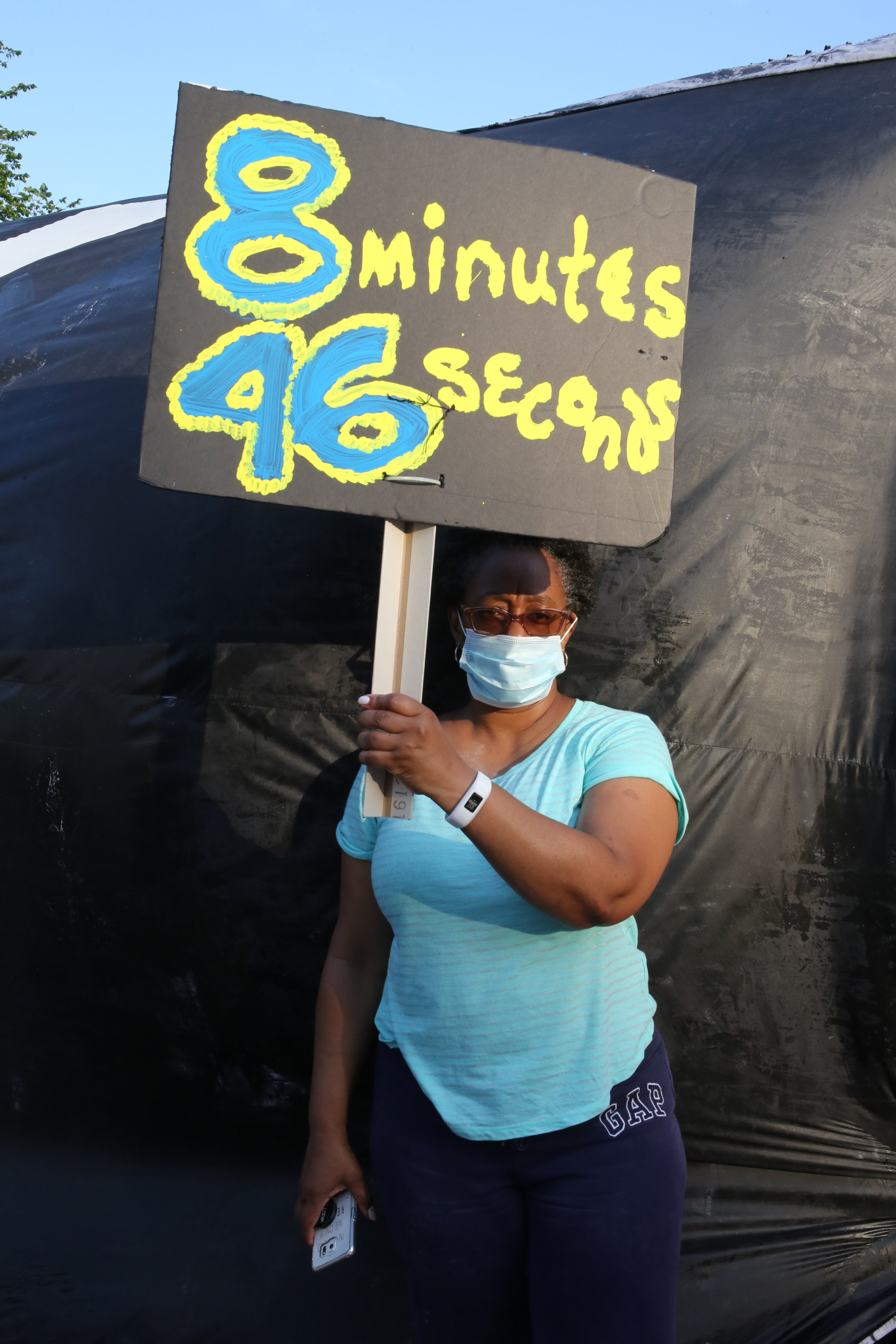
Betty Jackson, federal employee, 54
“Although George Floyd did not mean a lot to somebody, he means a whole lot to the entire world. Nobody expected this.”
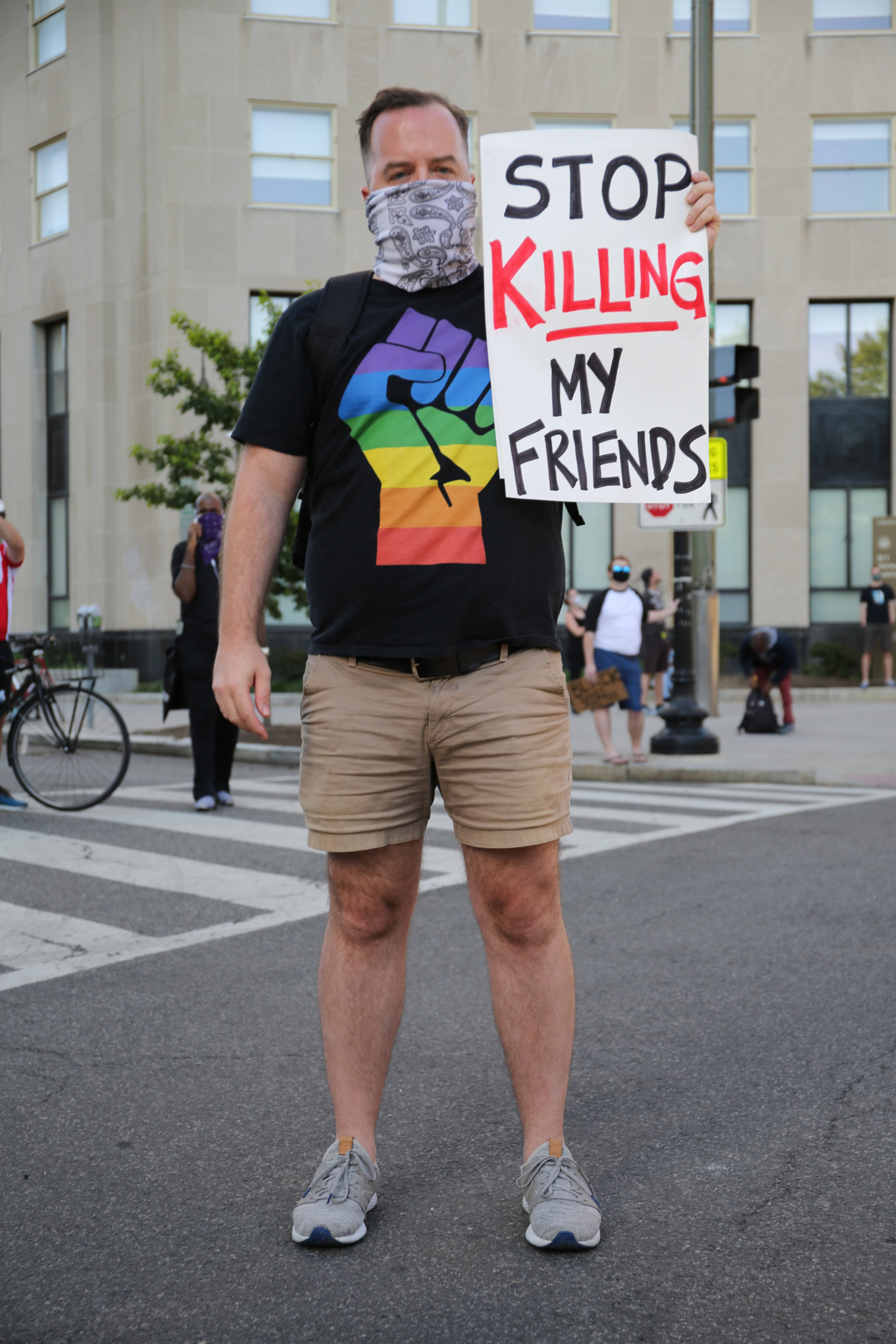
Matt Goodrich, 37
“I don’t know what it is like to be a person of color. I have to give up some of my privilege for them to have a life.”
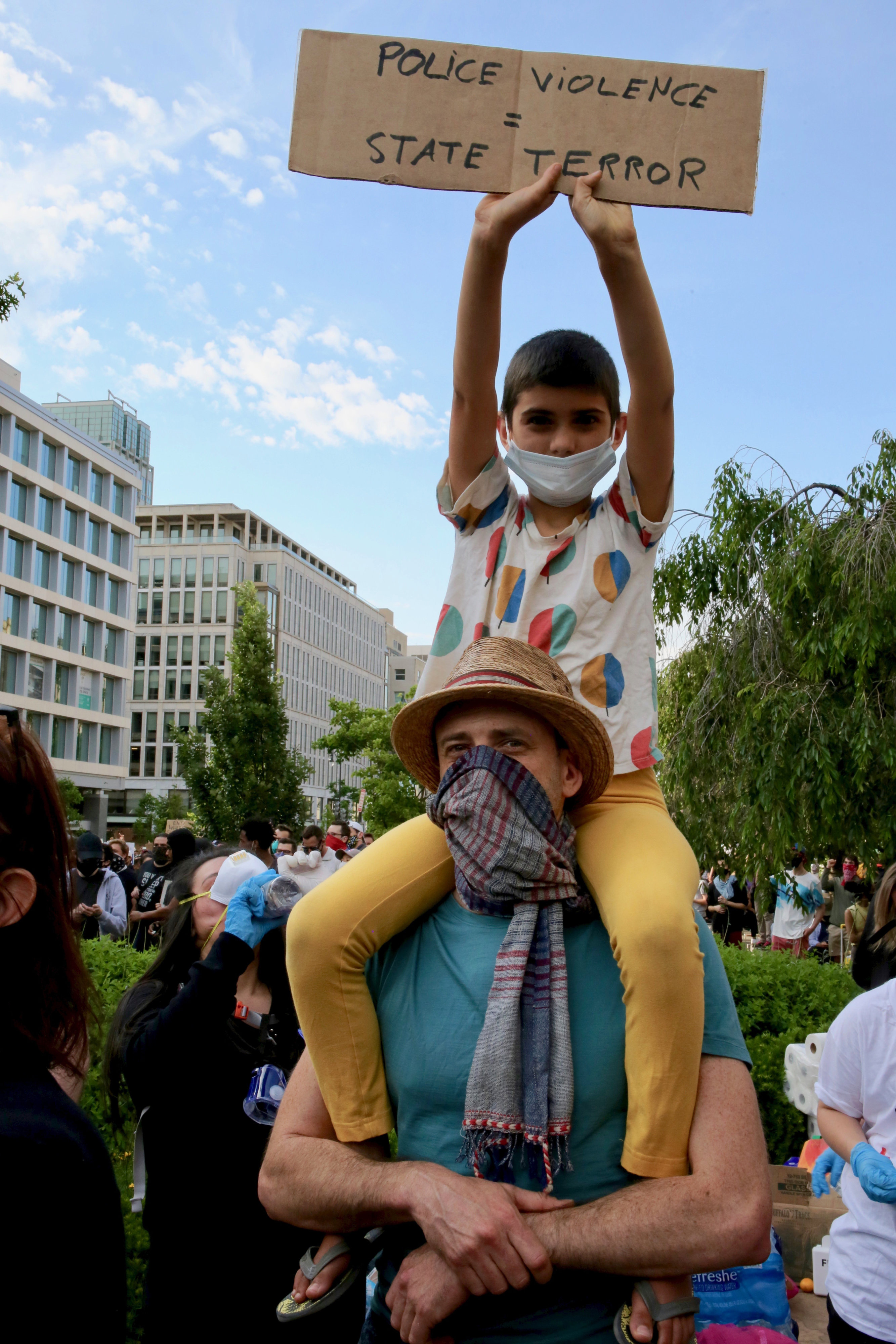
Mango, 9
“It’s really overwhelming, and it is really amazing”
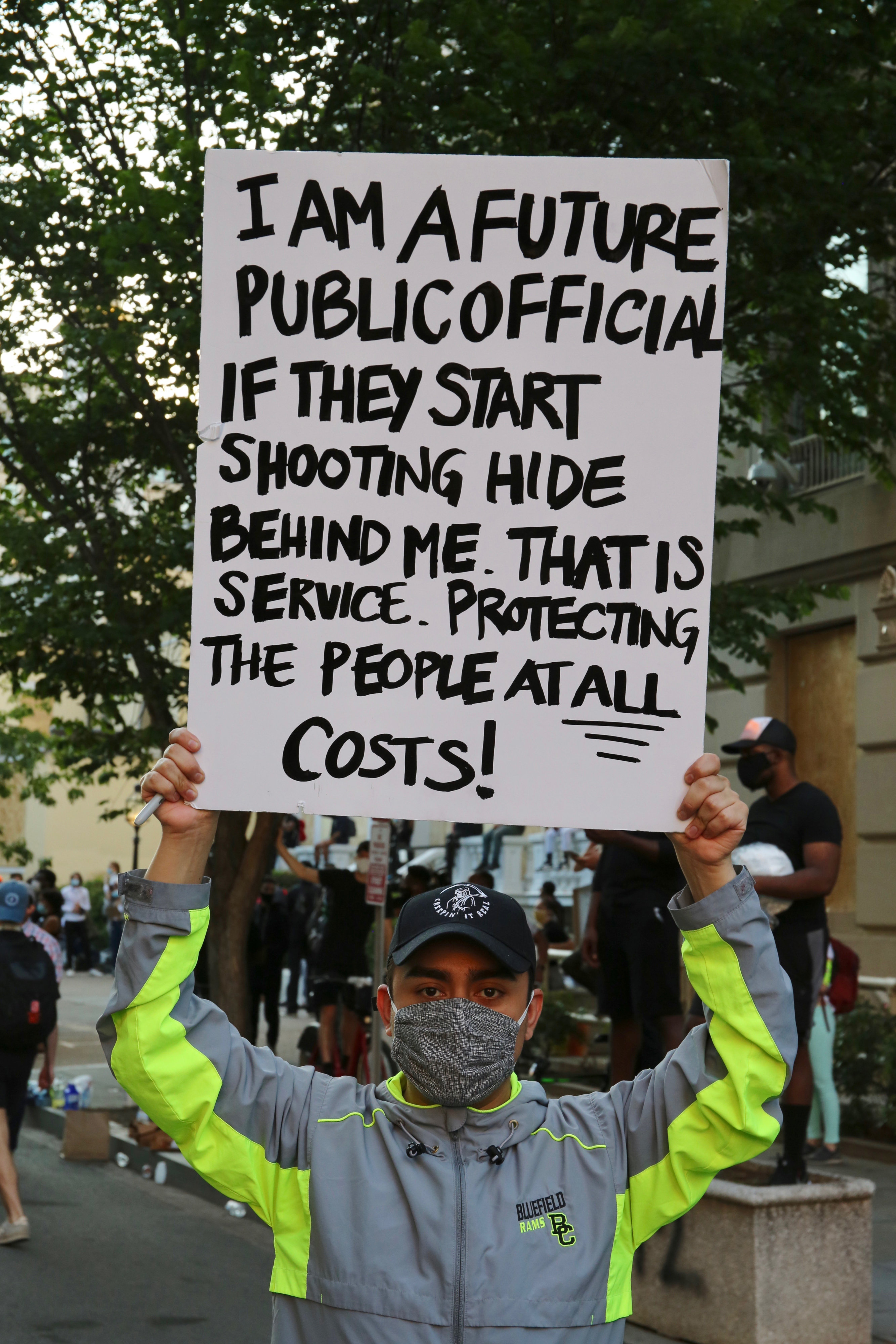
Dagoberto Acevedo, 24
“I have been called to serve the people and what that means is risking your health and safety because we are expected to protect and defend.”
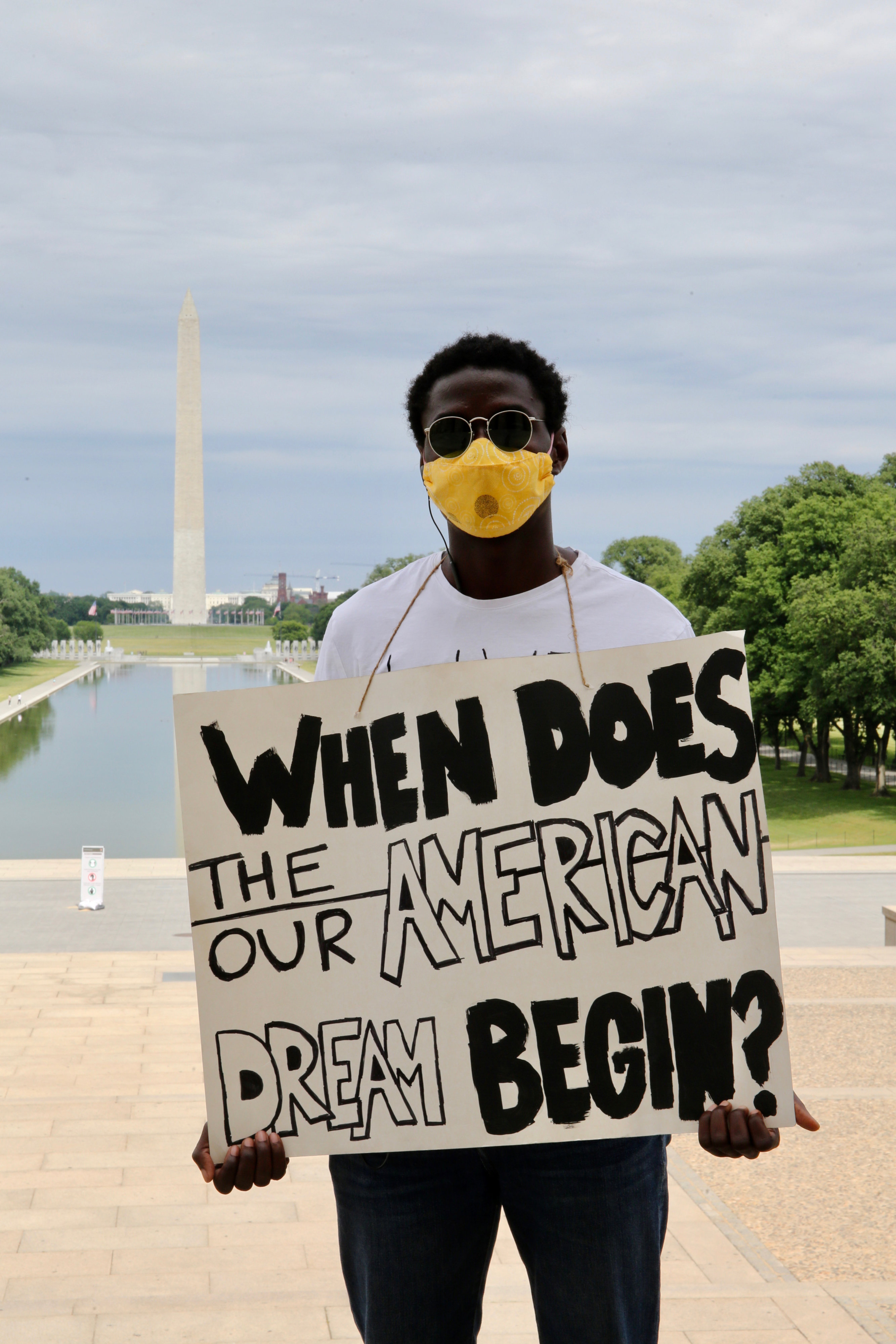
Yinka Onayemi, Georgetown law student, 25
“This is much more important for me then to stay inside and protect myself from Covid. I think it gives us a great opportunity to have time to think, process and reflect. Time we don’t normally have”
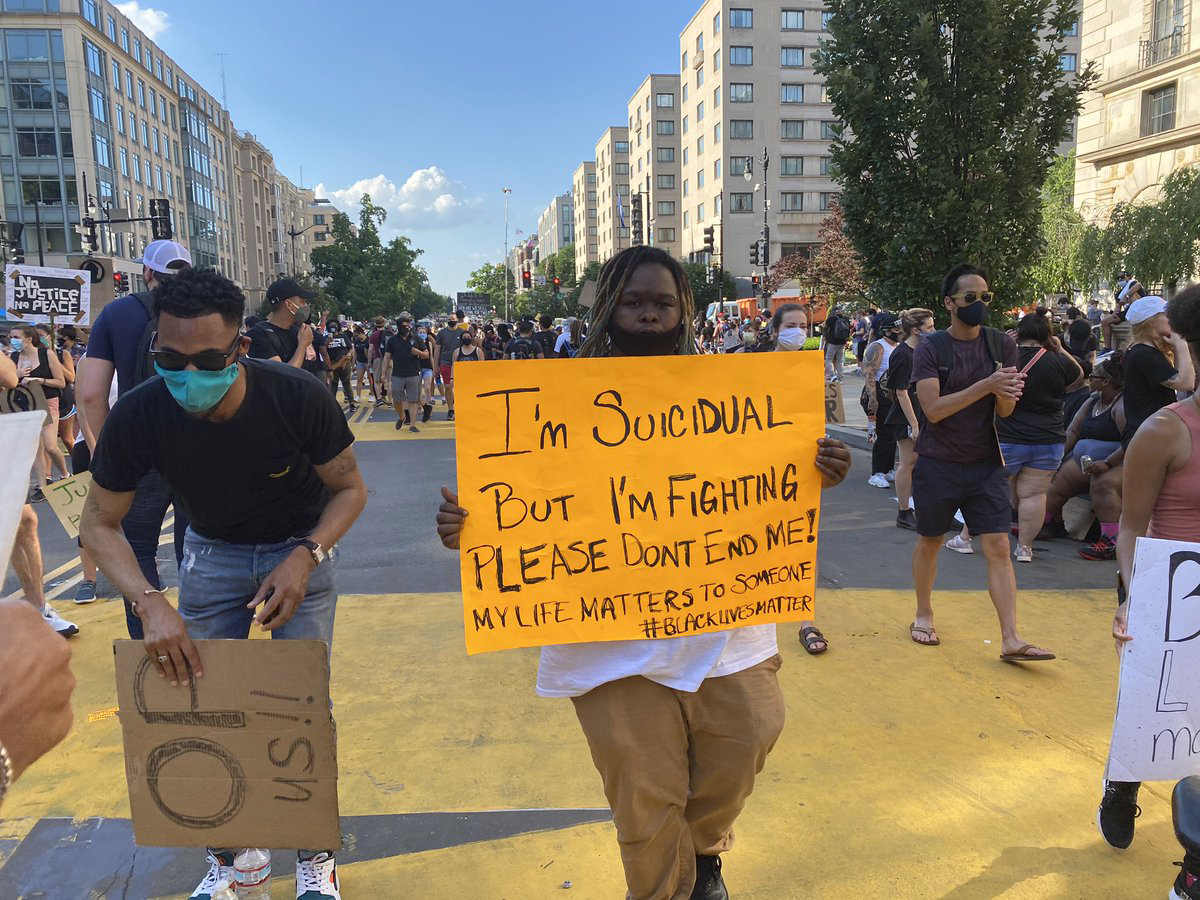
Mary Pope, DC
“If I’m willing to fight, I don’t wanna go out here and have someone else take my life. I know a lot of people care, I just wish a lot of other people would care.”
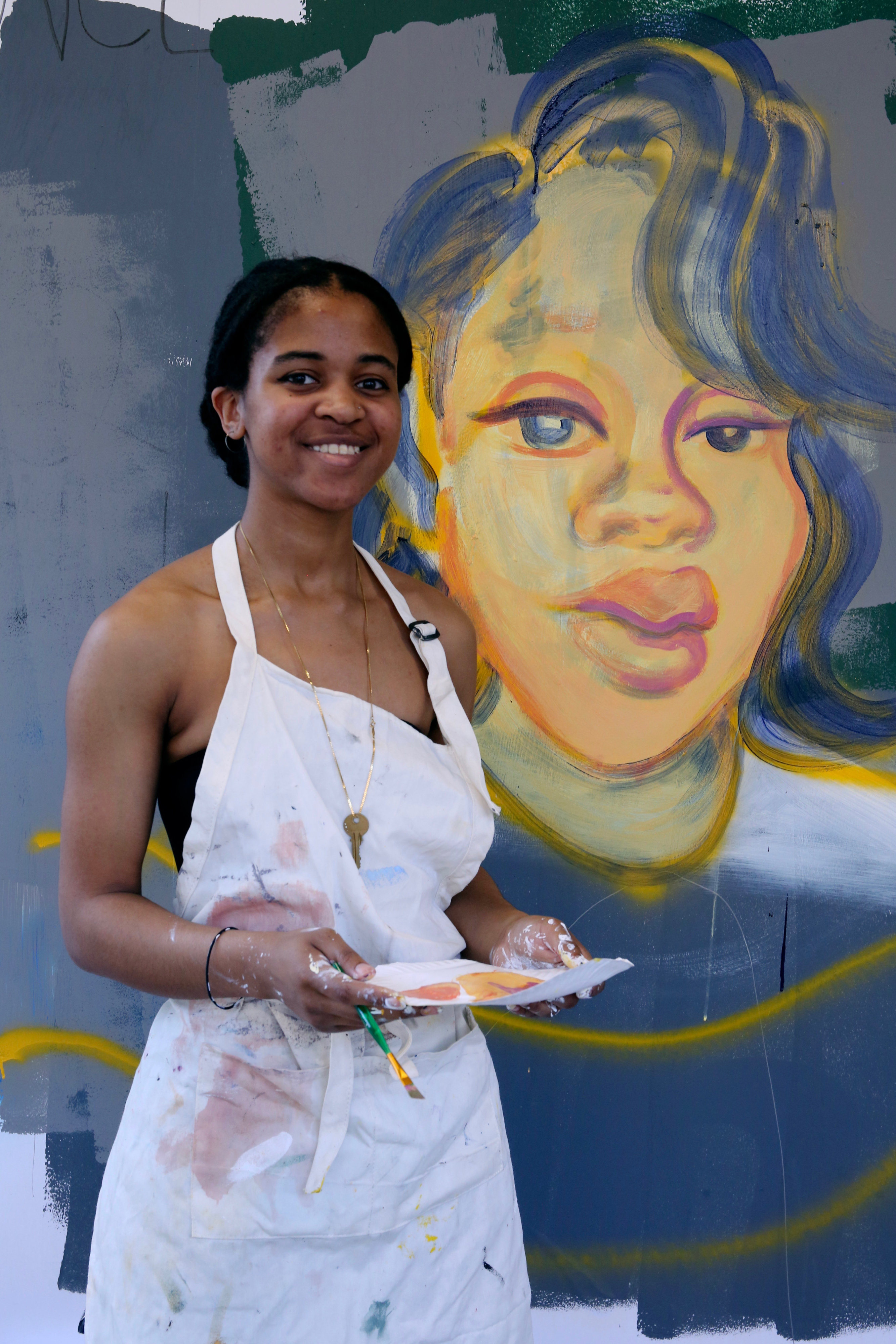
Yetunde, artist/student
“I feel like I have seen the city come together.”
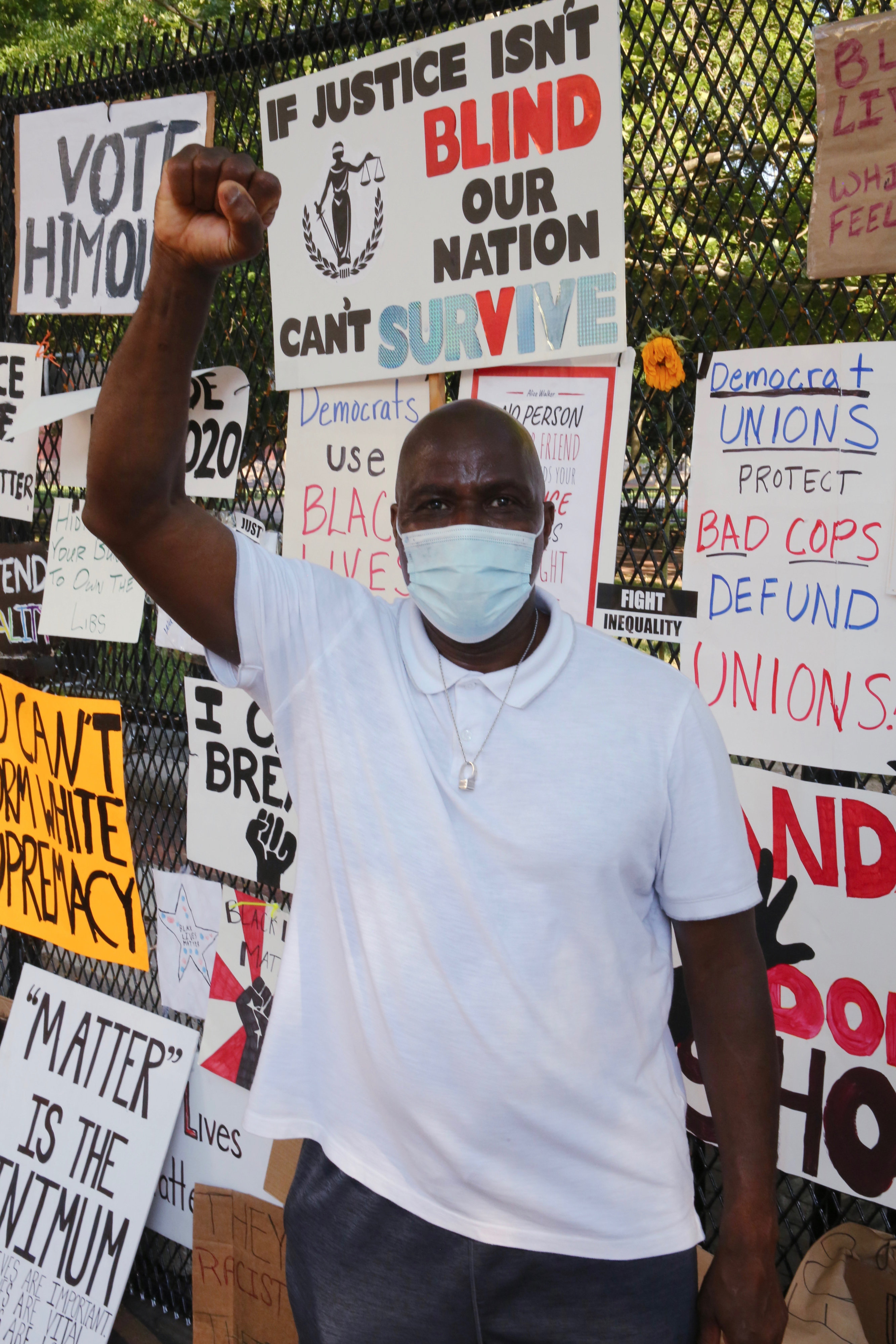
Mohammed Kamara, 57
“Over 400 years of slavery. Come on. Coronavirus or not, I have to be here.”
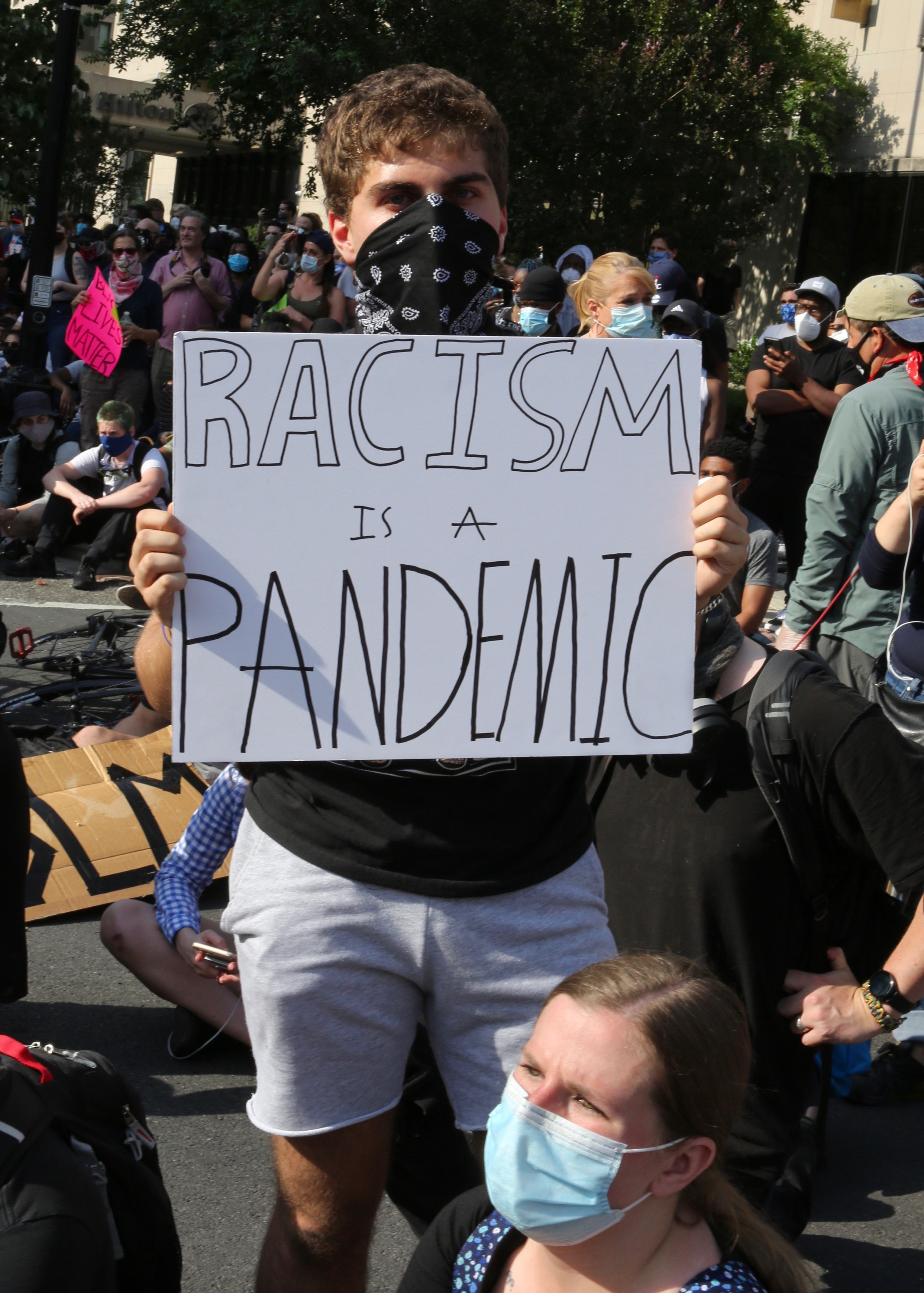
Sheridan Wood, Consultant, 23
“I just feel like I am part of something that is bigger then myself. The black community needs our help and we have to fight for them.”
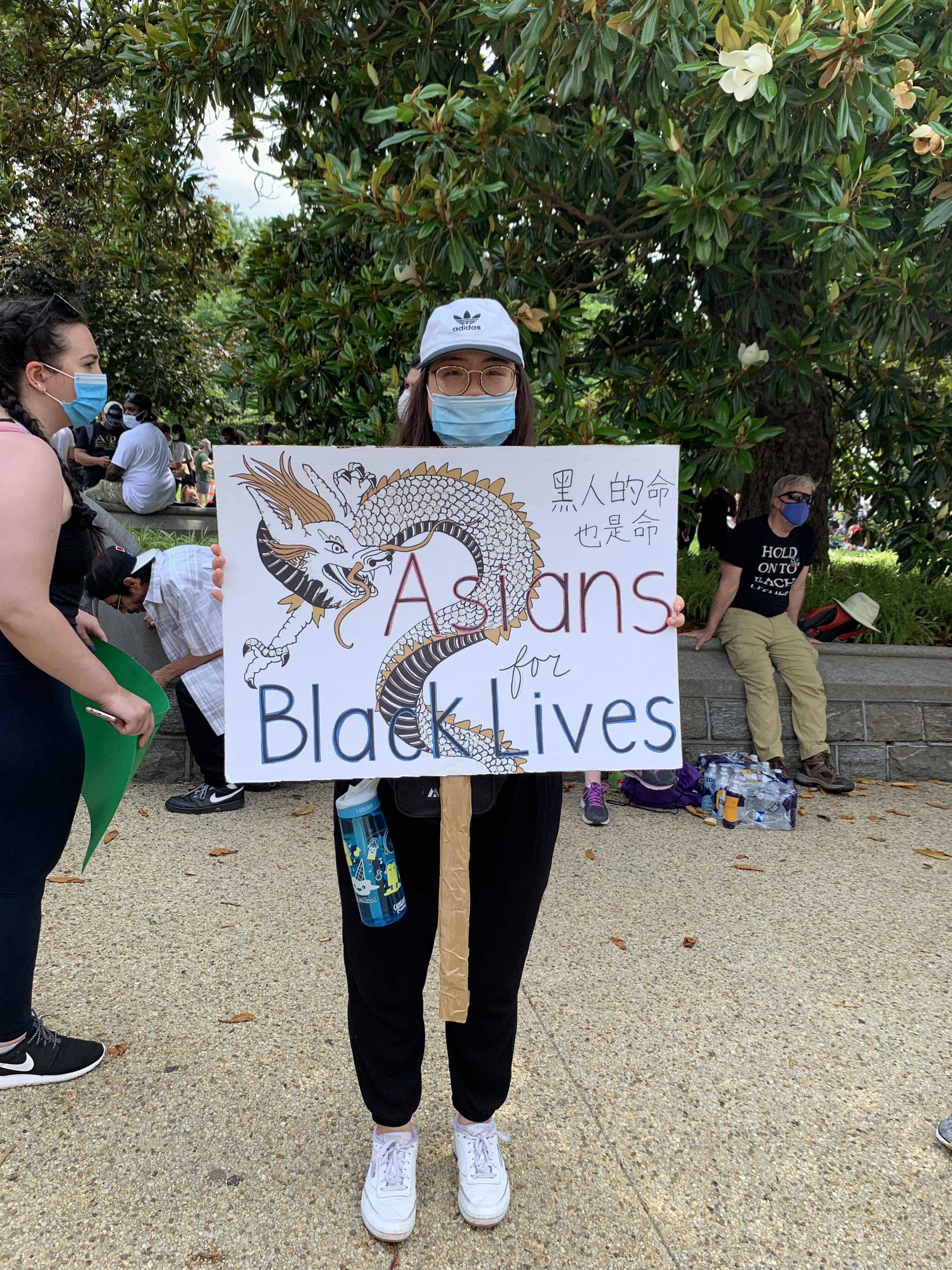
Dorothy
“It’s way past time that we take a stand.”
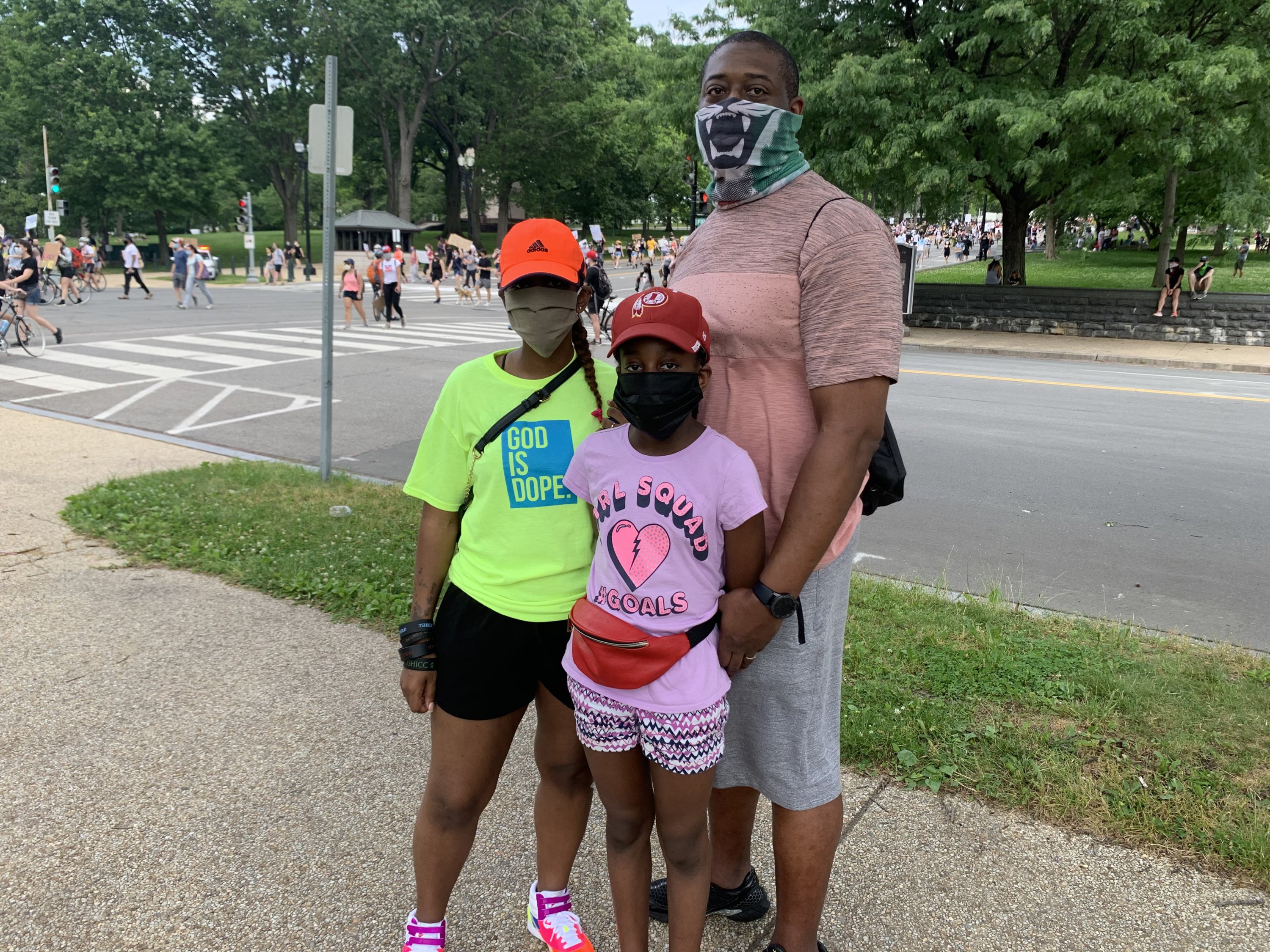
Stephanie, Elisha, and Renault Nwokeuku, Waldorf
Renault: “We’ve got seven more [kids] at home. Four boys and four girls. Them seeing this–this is the most united this country has been over an event in a while. It’s a terrible tragedy, but the response is what helps to maintain hope. Everyone feels like there’s a need to change.”
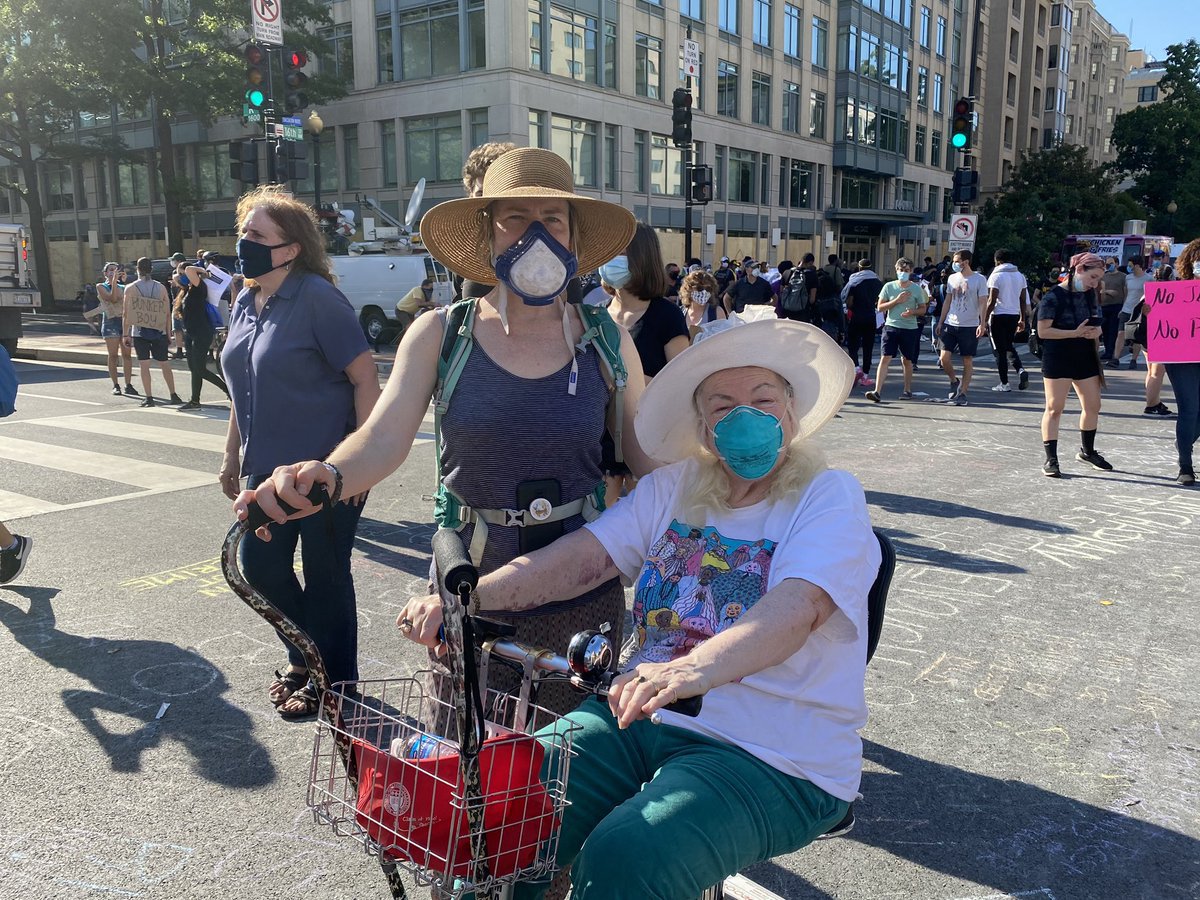
Alisoun Meehan (left) with her mother, Susan Meehan
Susan: “We in the District are more subject than citizen. It’s doubly important that we come out and protest when things need to be changed.”
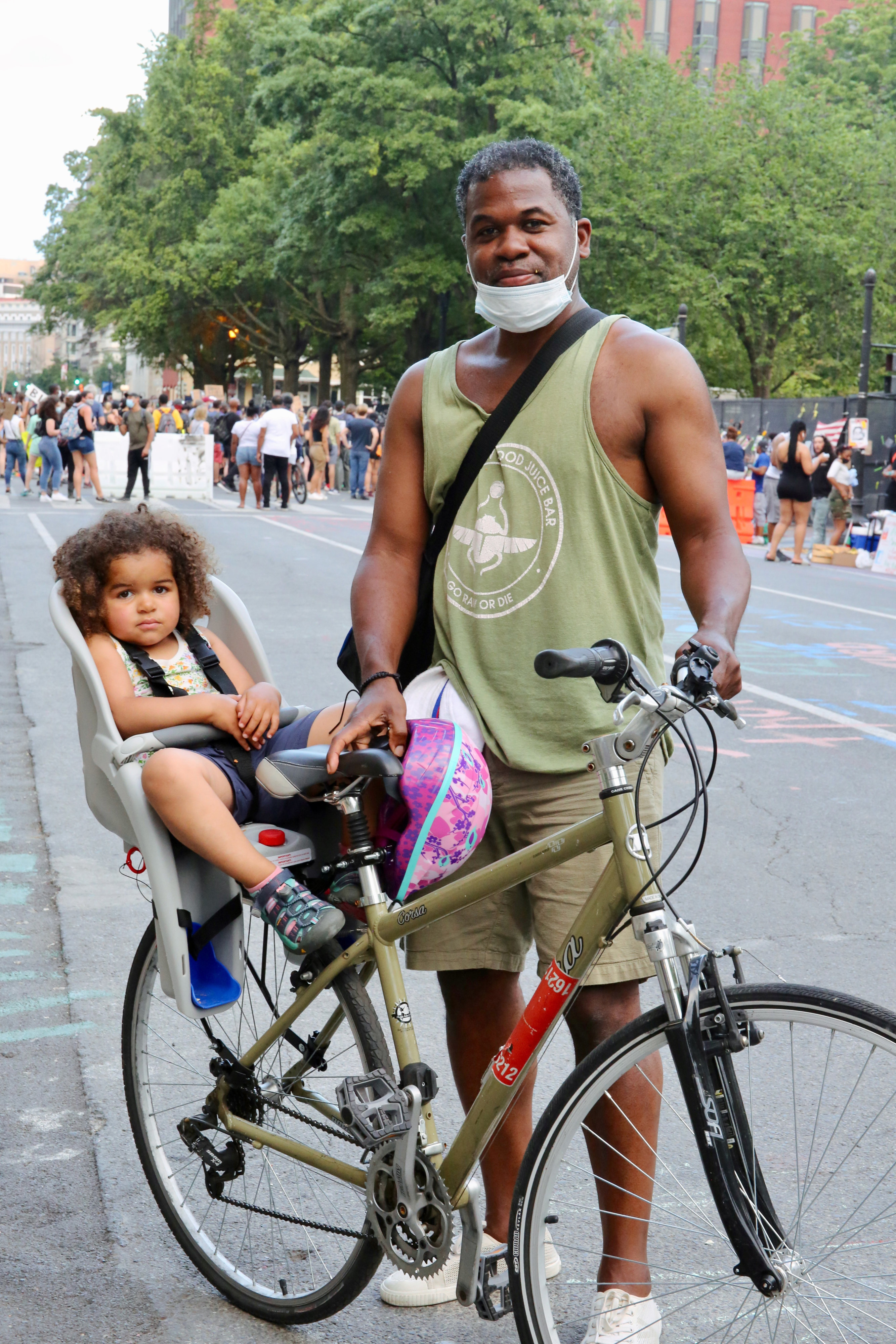
Paul Johnson, mediator, 45, with daughter Isabel, 3
“It makes you feel powerful being out here.”
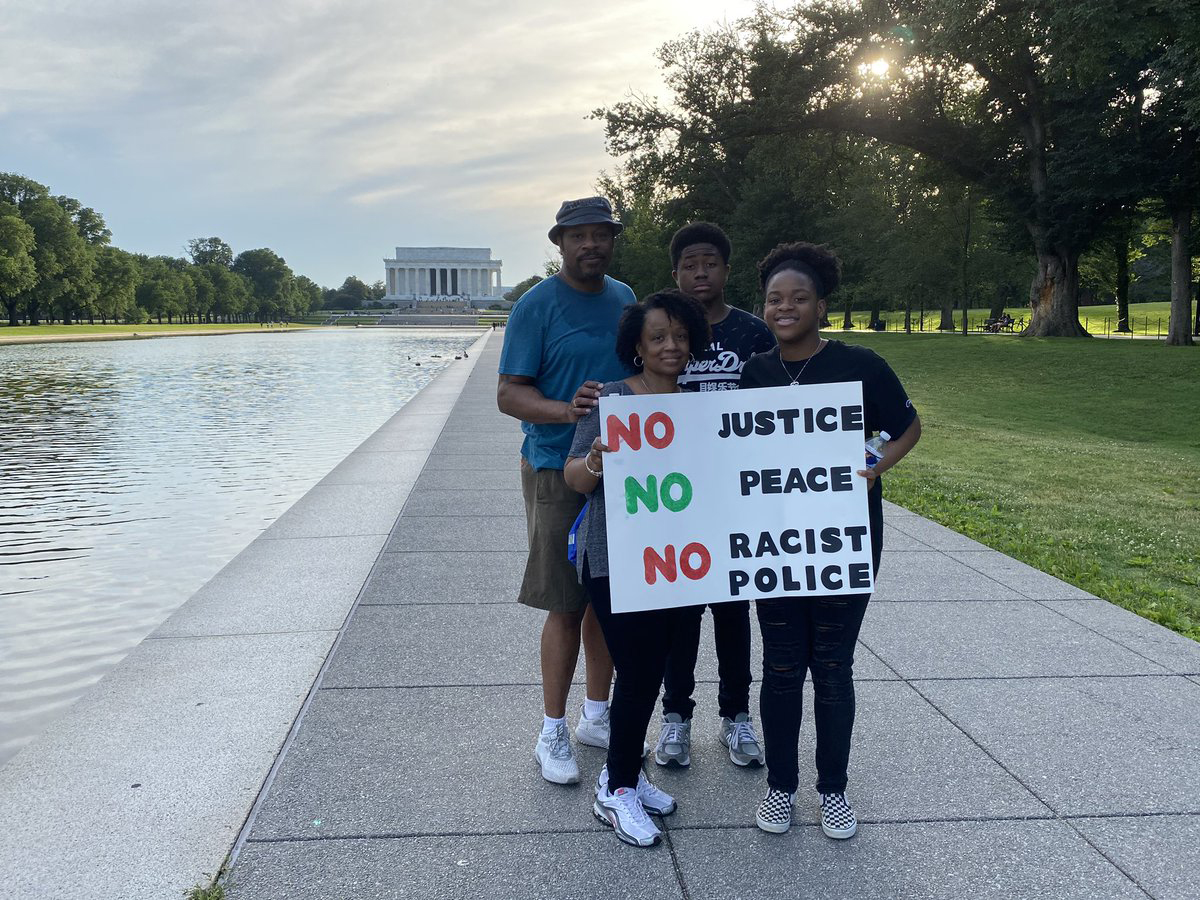
Robert, Gia, Anthony, and Ciara Grady, Waldorf
Gia: “We came so my children could have the experience of standing up for something and advocating for themselves. If things don’t get better they could be the next victims.”
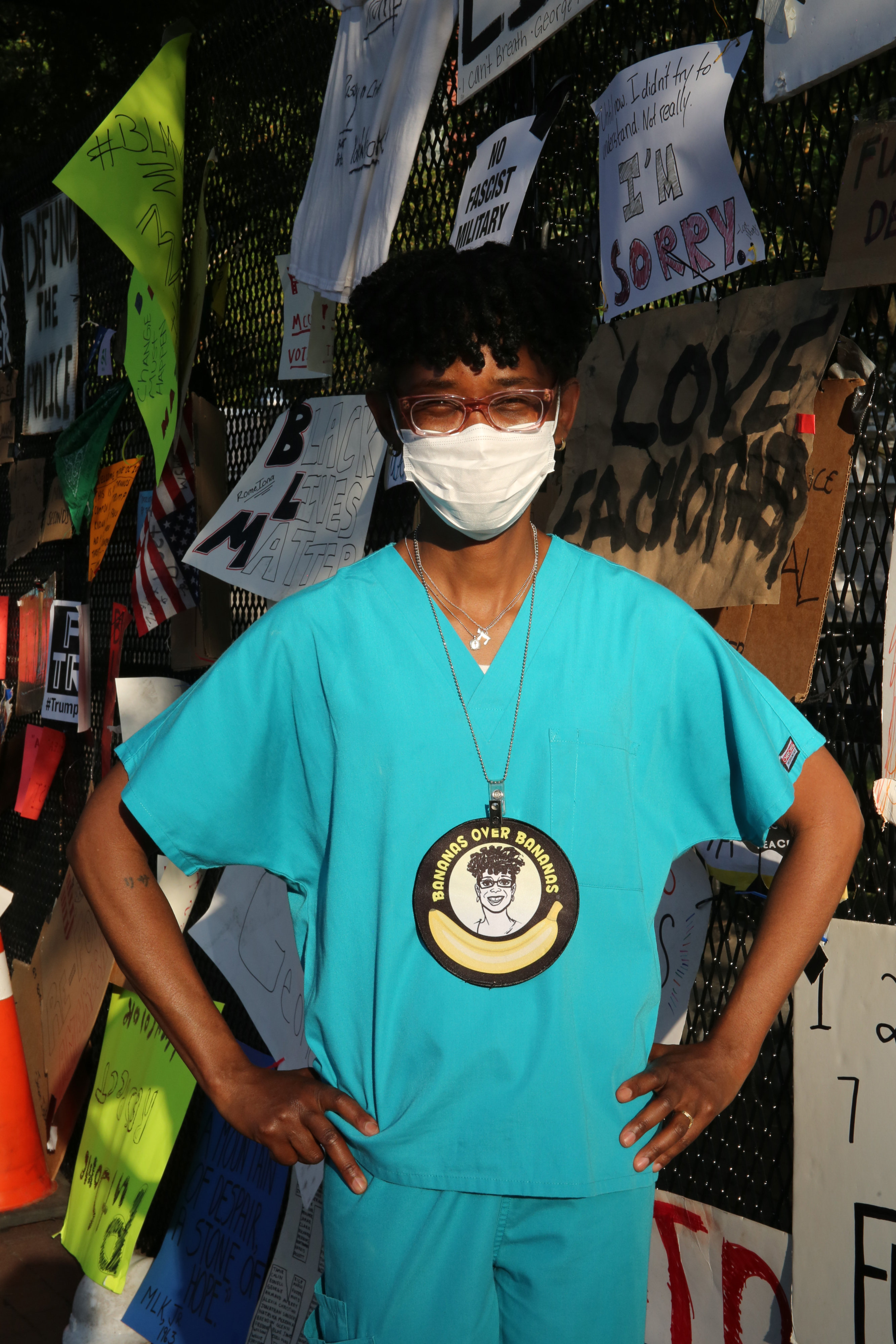
Lisa Campbell, occupational therapist, Baltimore
“It is a humbling feeling being out here.”
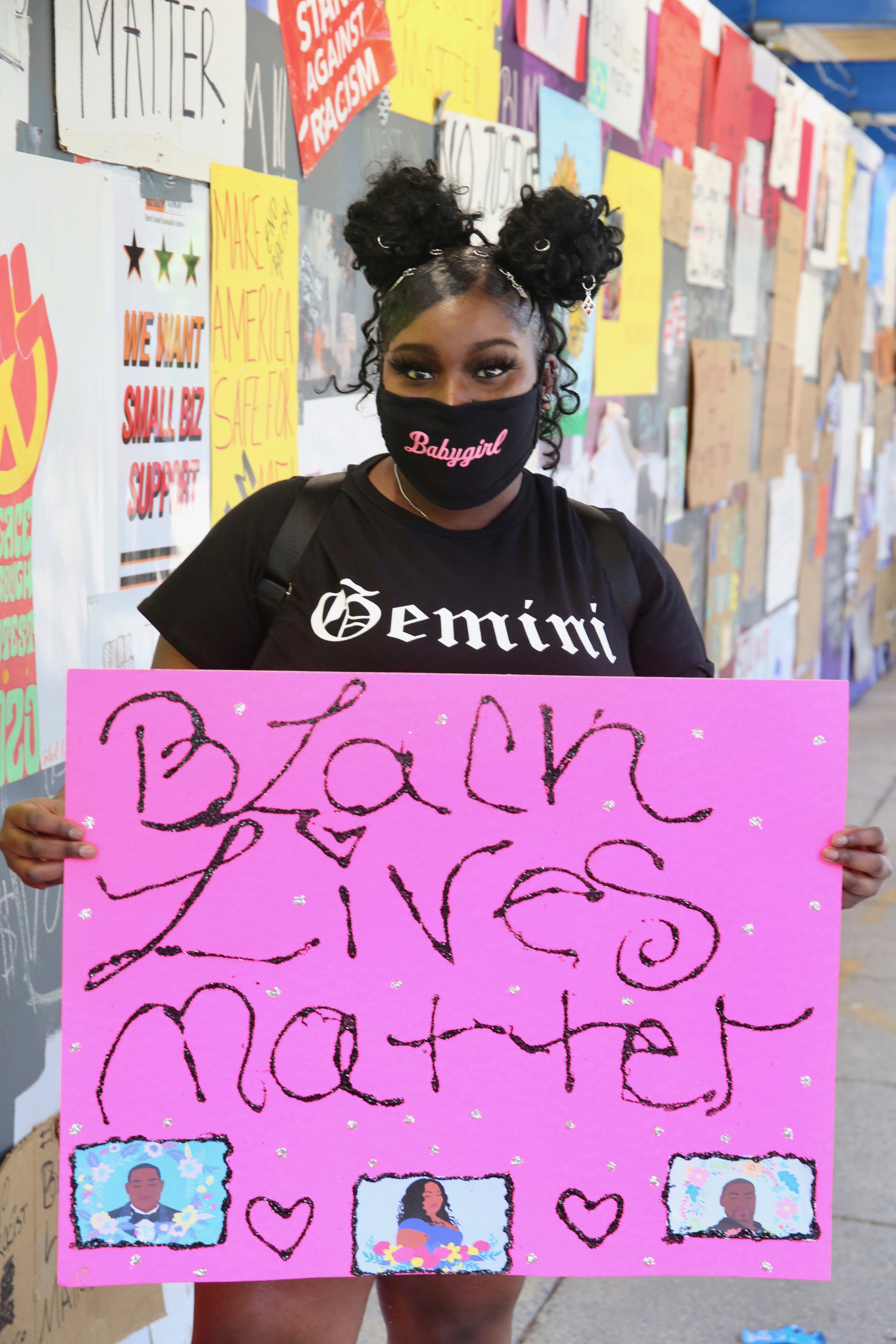
Anslee Smith, 20
“I wanted to see what everyone was talking about and experience it for myself.”
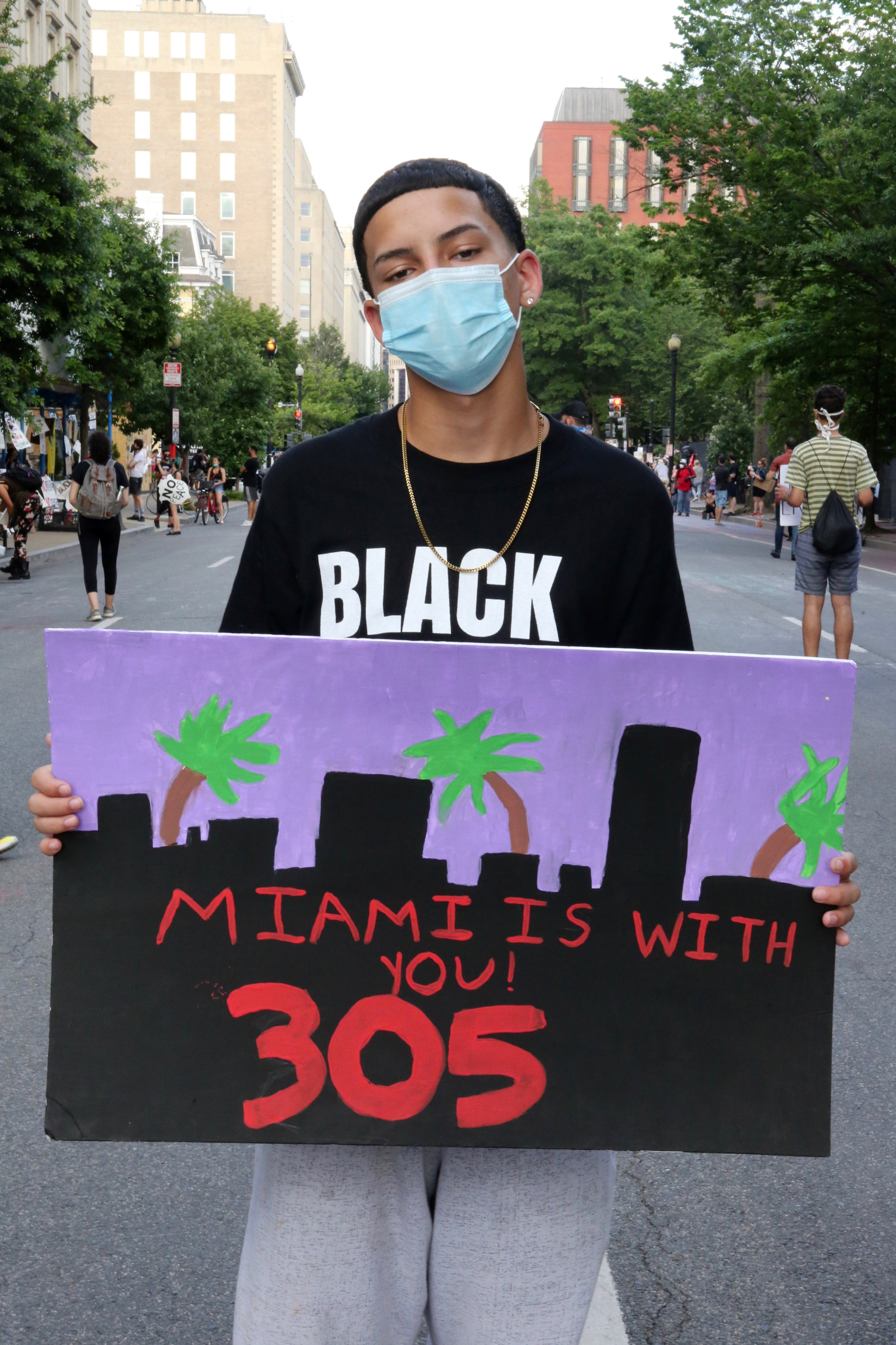
Anthony Valdes, 14
“I like coming here. Good energy. I come here to be part of the protest and of history.”
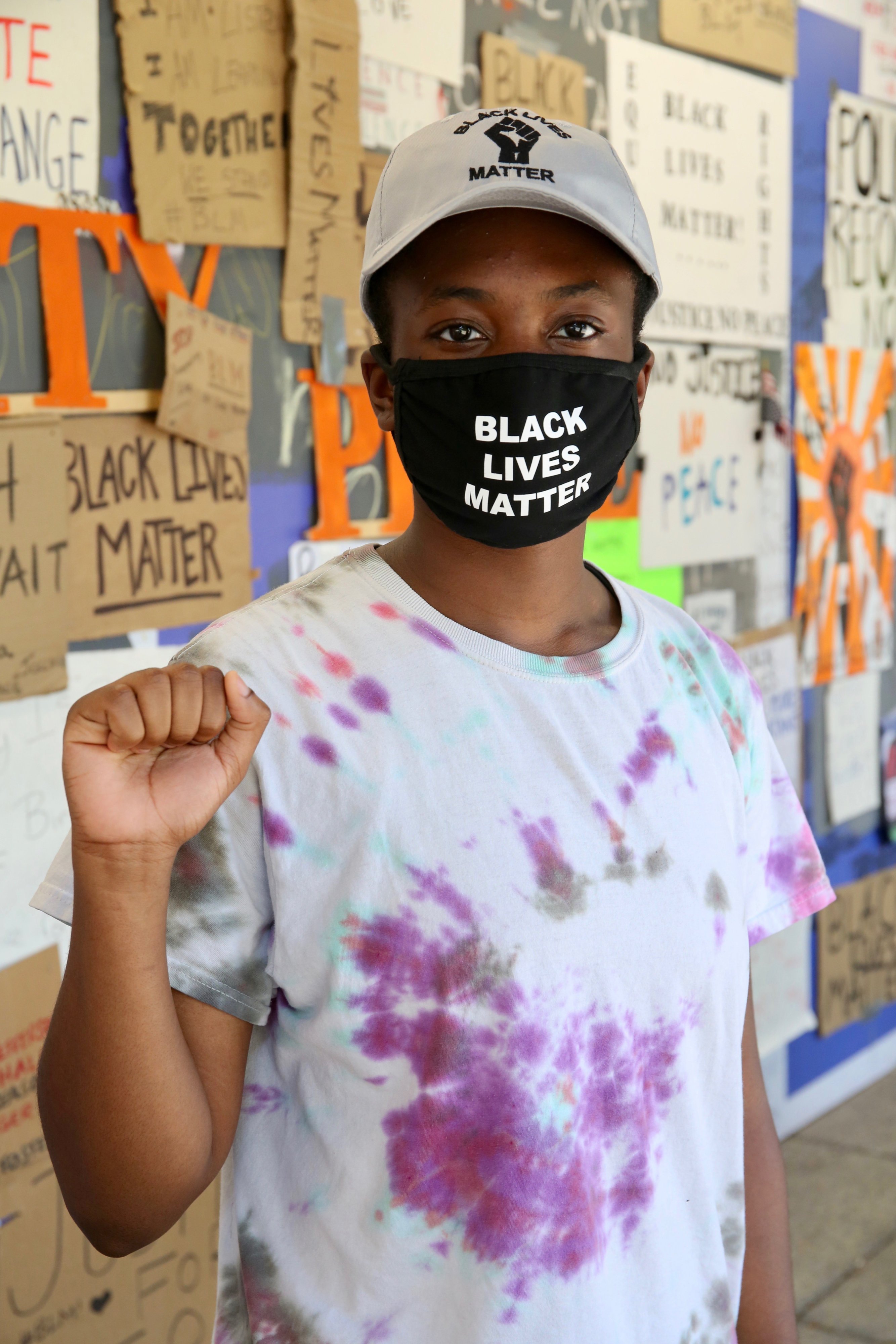
Leala-Lael Pickett, 17
“I refuse to learn to live with oppression.”
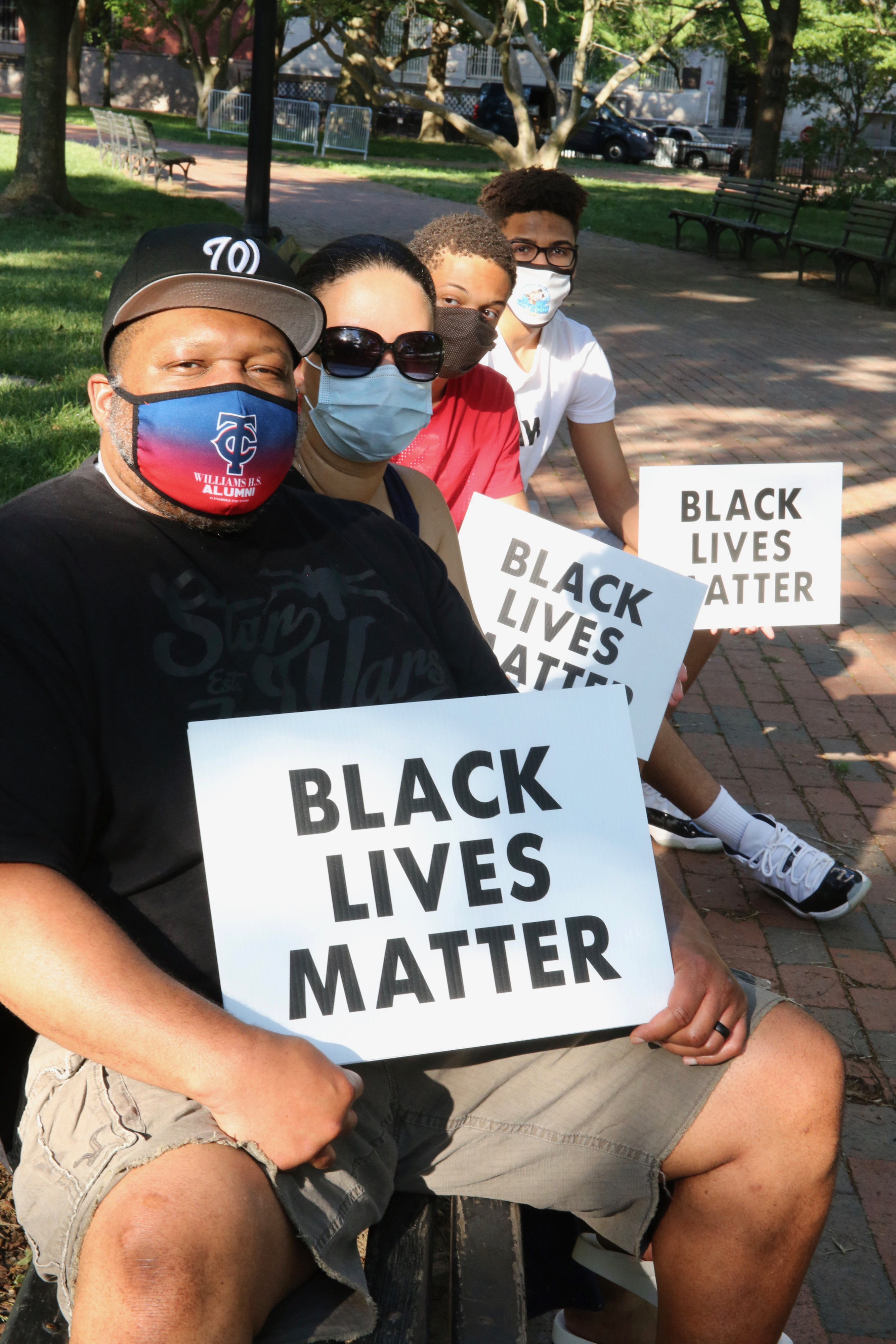
Mericko Marlowe, with his family
“I am still keeping my social distance because I am aware the virus has not gone away yet.”
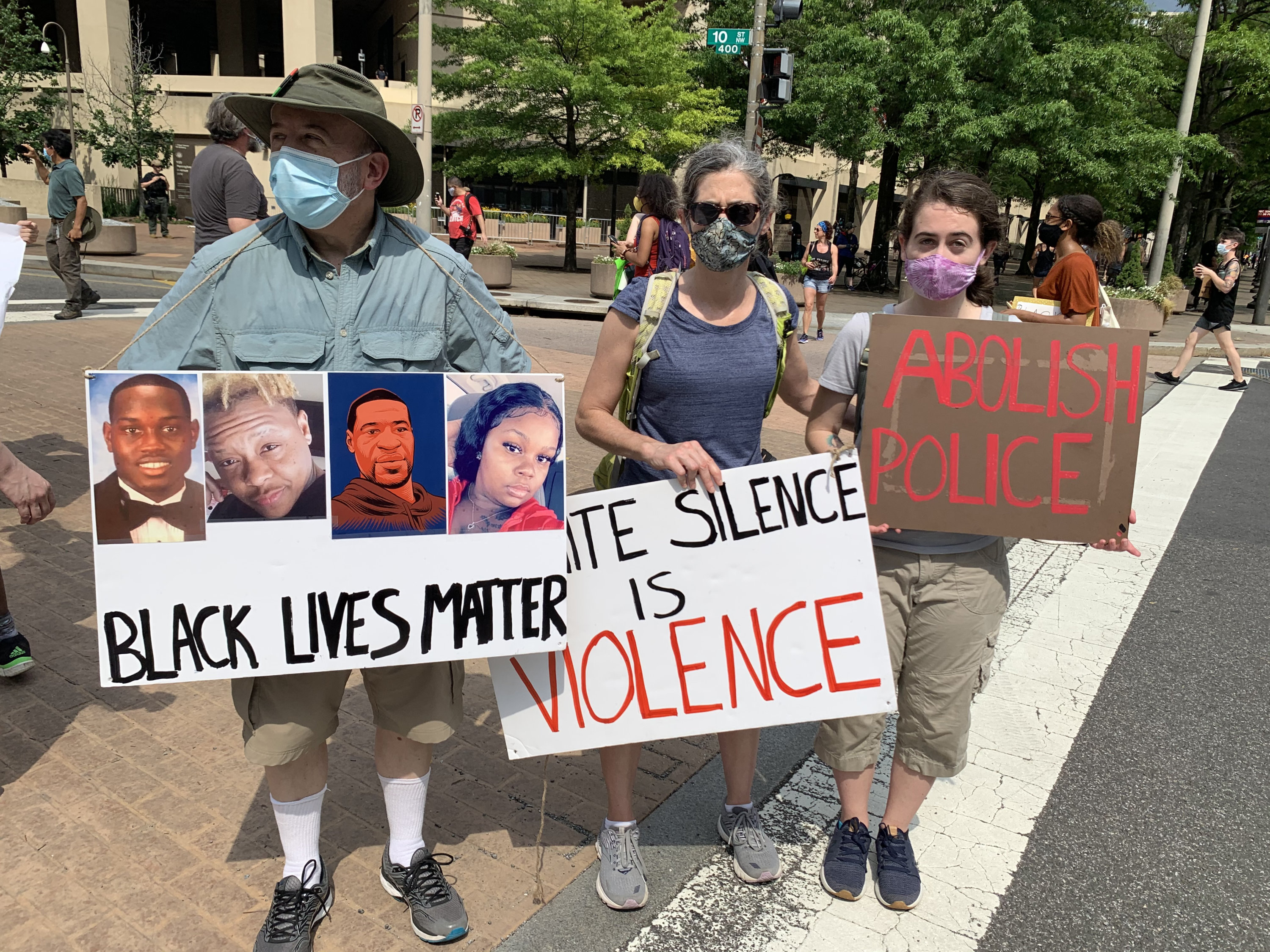
Steven Harvey and Lisa Hack, Silver Spring
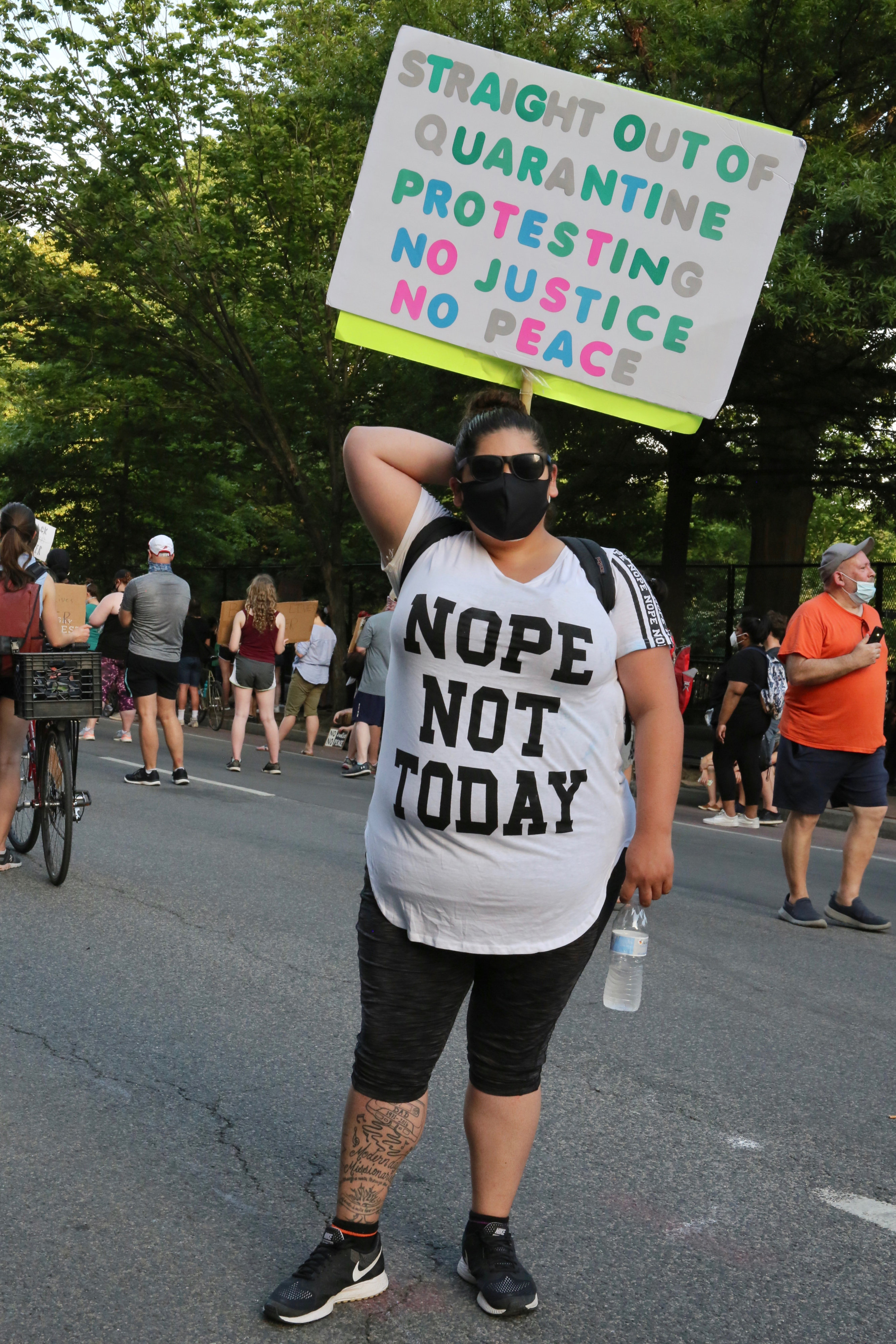
Mimi
“I am angry and appalled by the behavior of the police.”
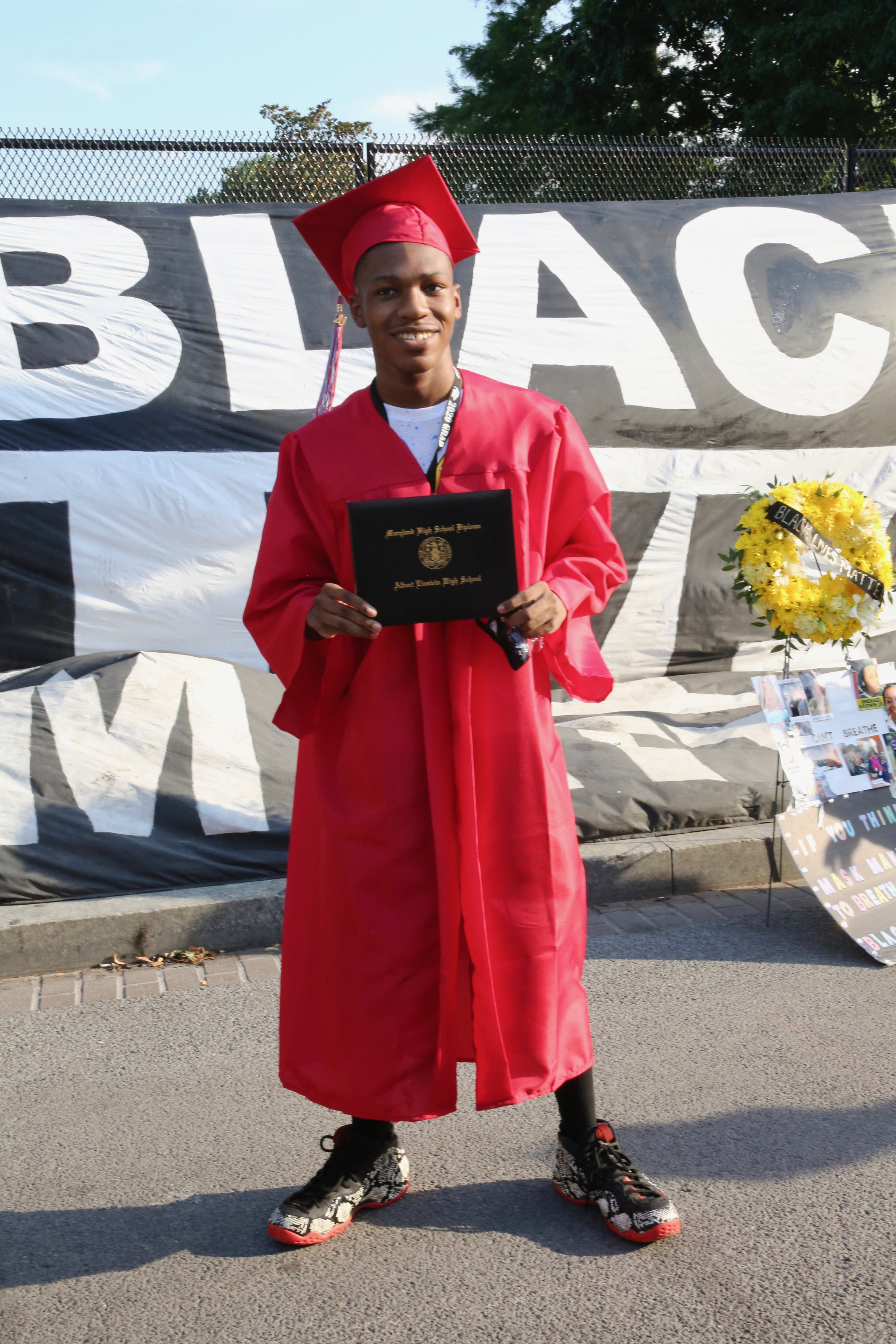
Christian Stevenson, Albert Einstein High School graduate
“Being here feels amazing, the best feeling I have had in a long time. Of course I am worried about corona. Everyone should be worried, but there are bigger matters at hand. The world has not achieved human equality. We want it and we yearn for it.”
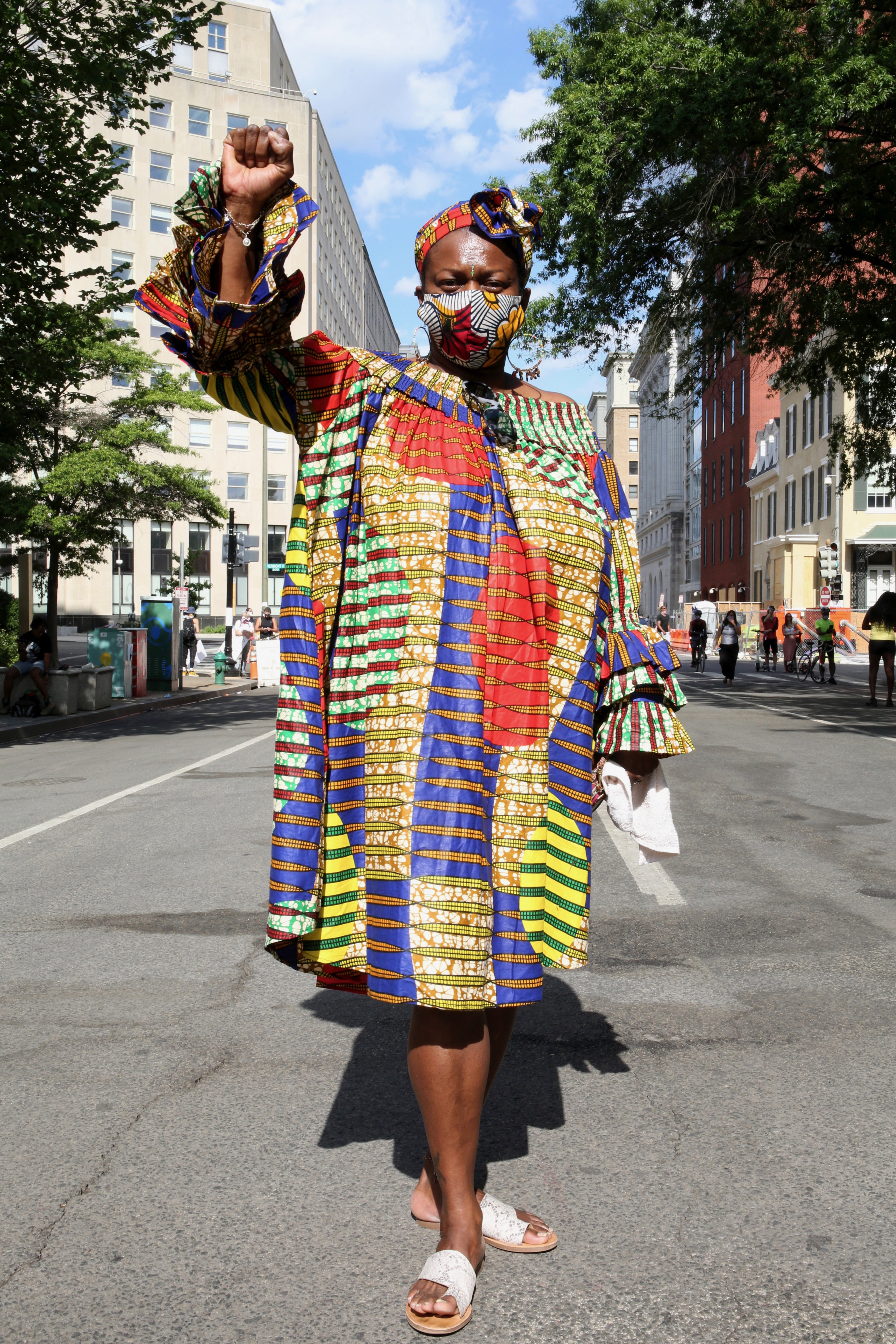
Monique Olomidun
“With every breath of life, there exists hope. Hope that powers that be will become conscious.”
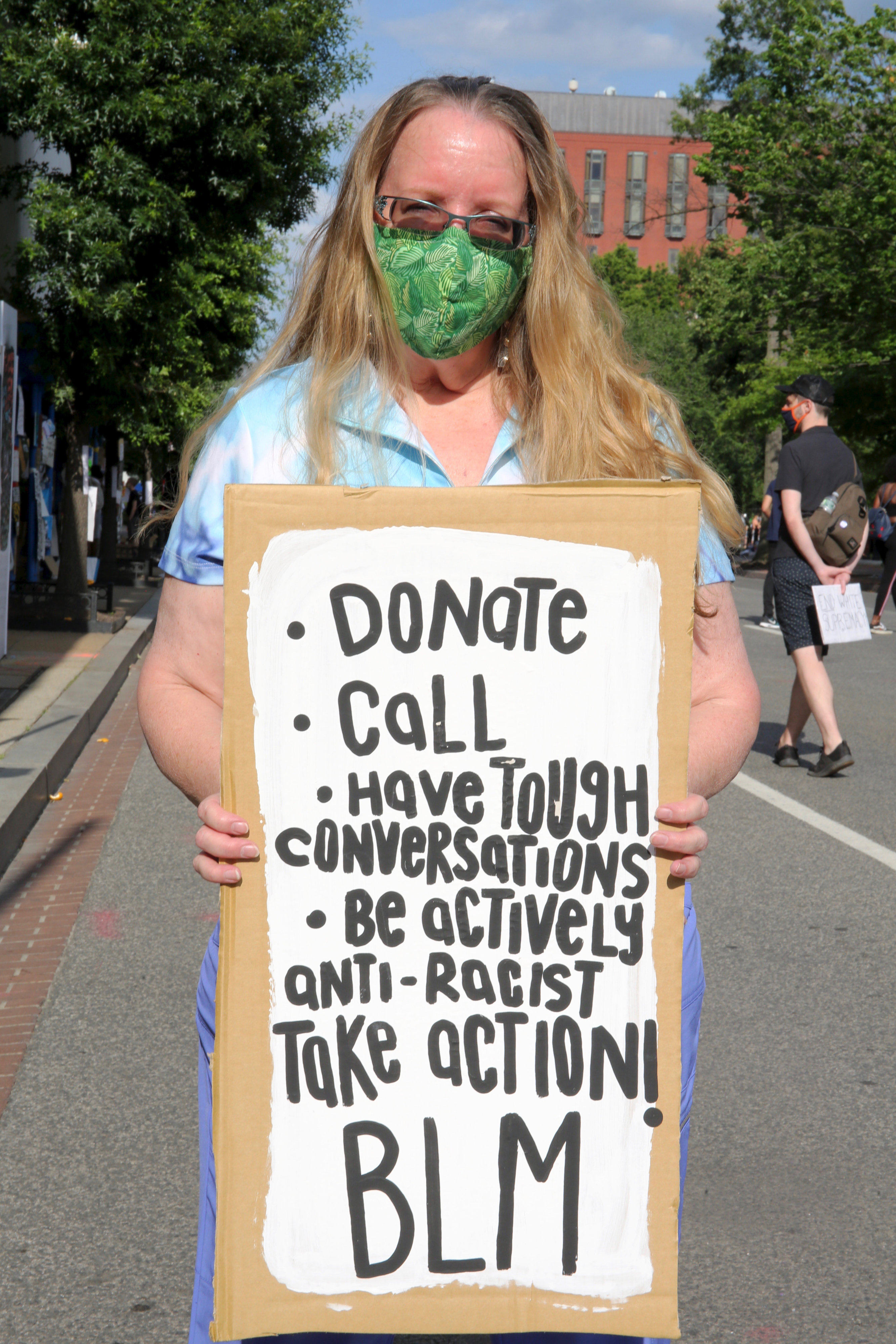
Mary Olson, government contractor
“It feels like a historic moment to be here and it is happening in DC with all its history. And today is my birthday.”
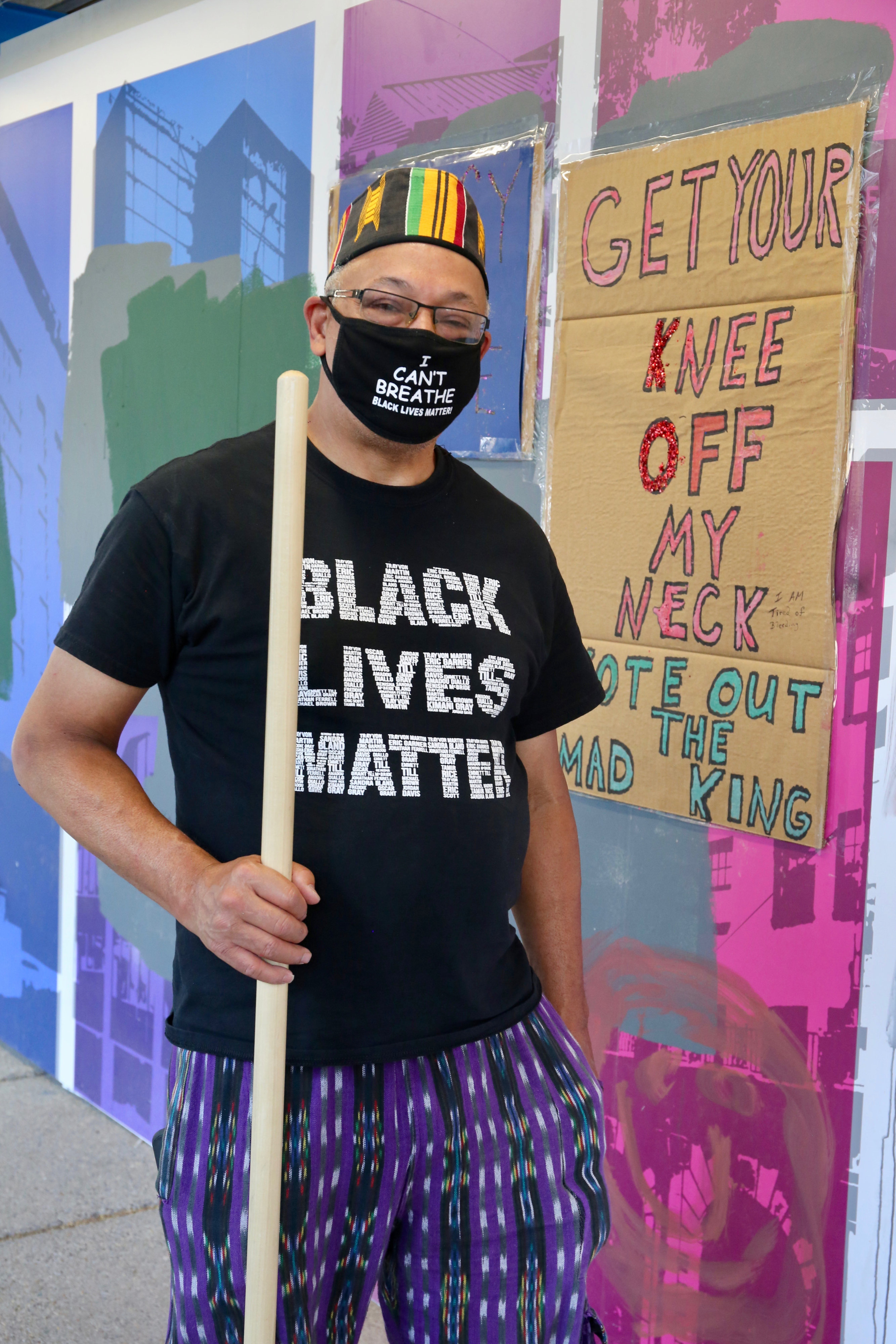
Edward Galiber, 64
“I will look back and think: I was there. This is the watershed moment that changed everything.”
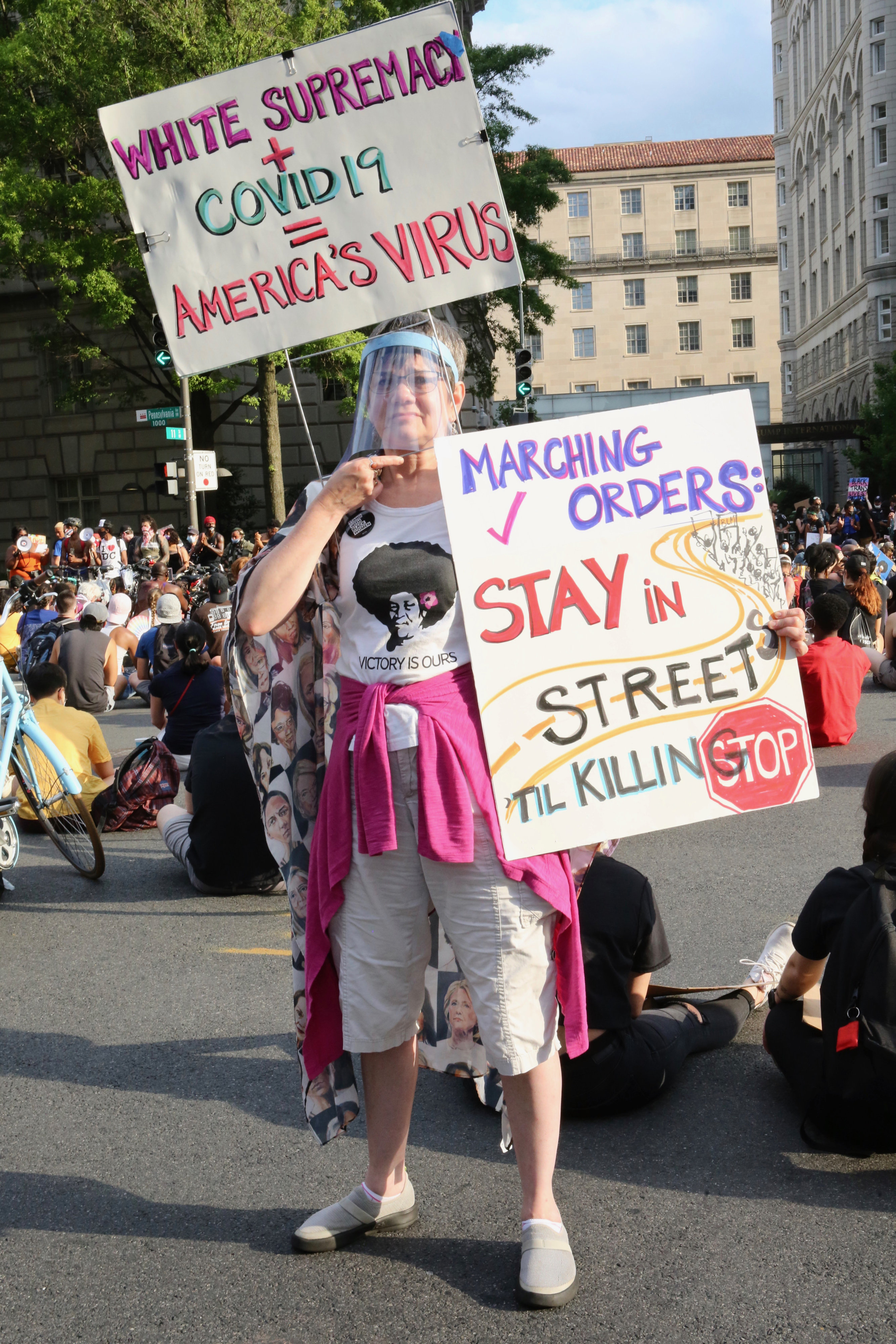
Anne Hughes, Connecticut state representative
“The power lies with the people. I ran for office after the Women’s March and won. Now I am out here in support of this movement. Stay in the streets until we get meaningful change.”
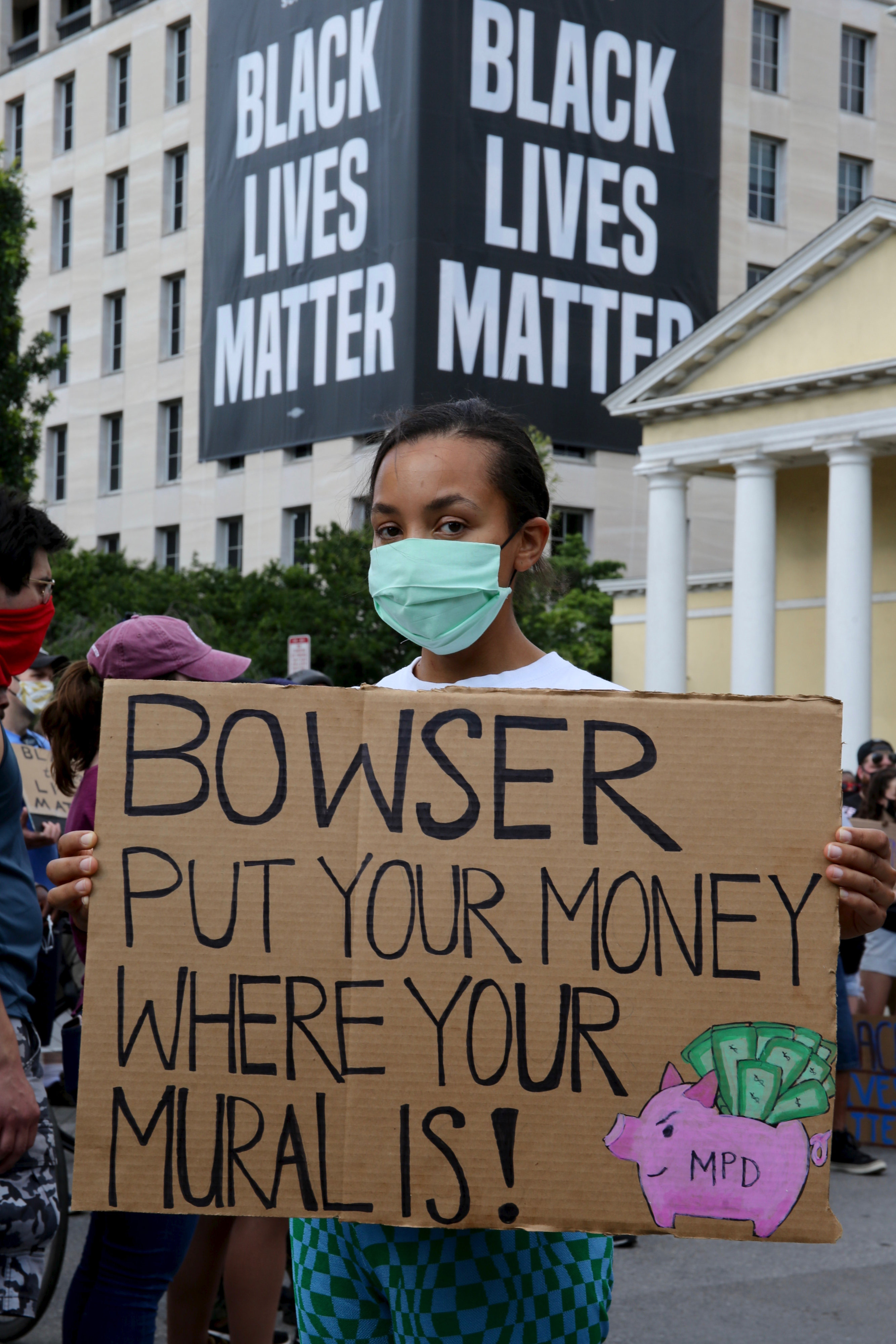
Marcie Browne, behavioral therapist, 29
“It’s very nice to see everyone together but I would like to see more focus on the goal of Black Lives Matter DC, which is to defund the police.”
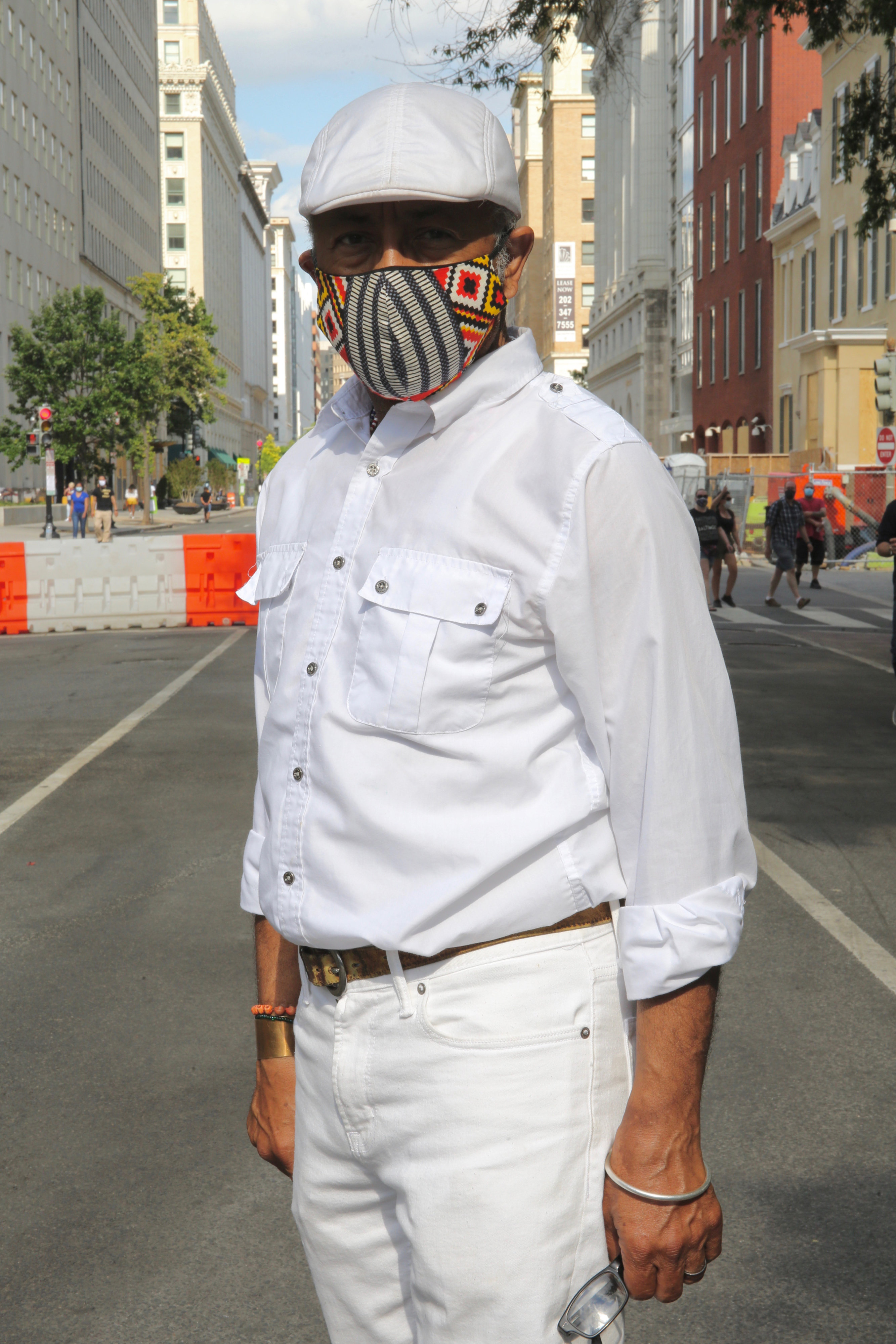
Orisegun Olomigun, artist, 69
“With every breath of life, there exists hope. Hope that powers that be will become conscious.”
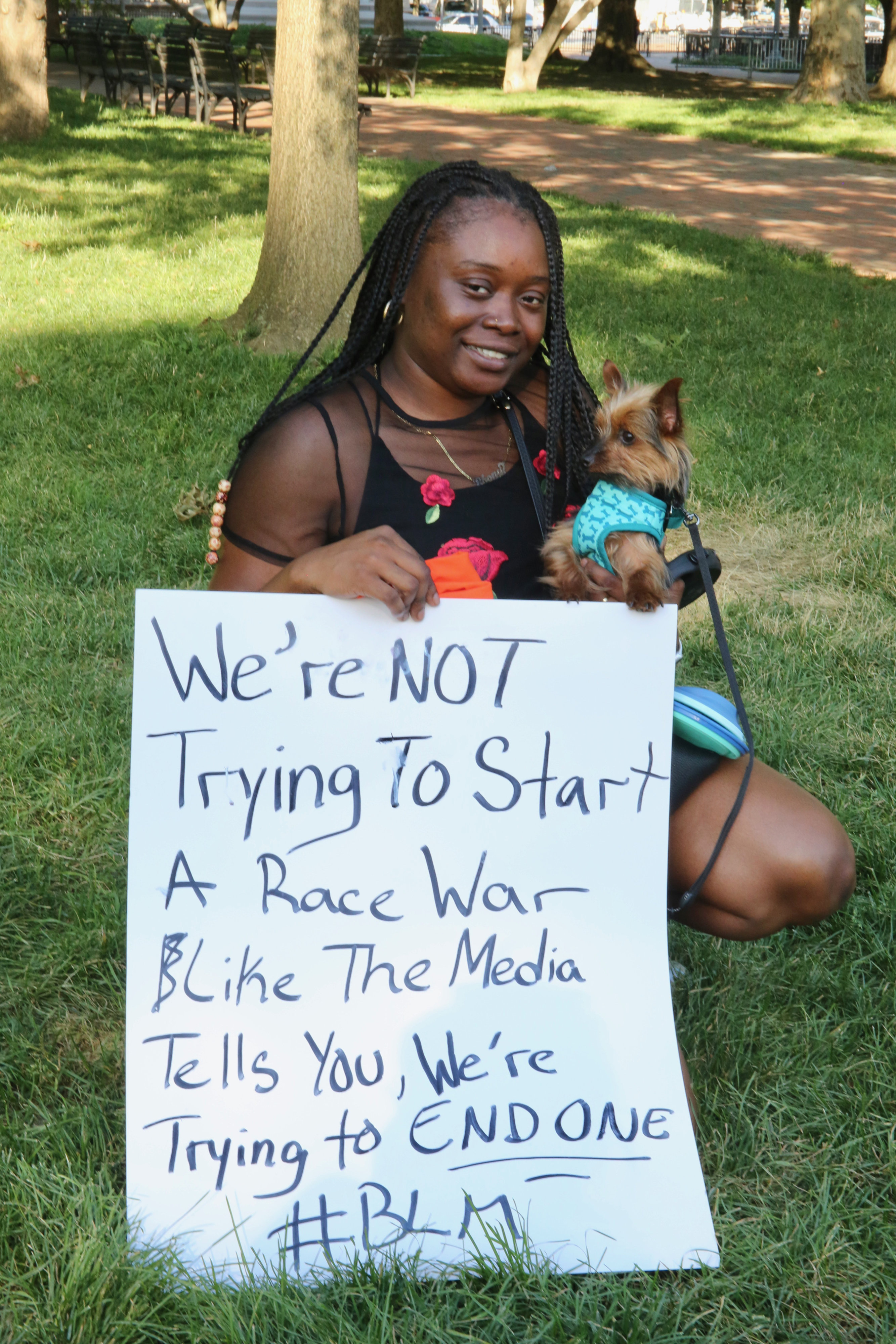
Ebony Ayling
“I have a young boy, four years old, and I want him to know that he will always have equal rights in this world. I am protesting because I want him to have a better education at any university and that he can be anything that he wants to be.”
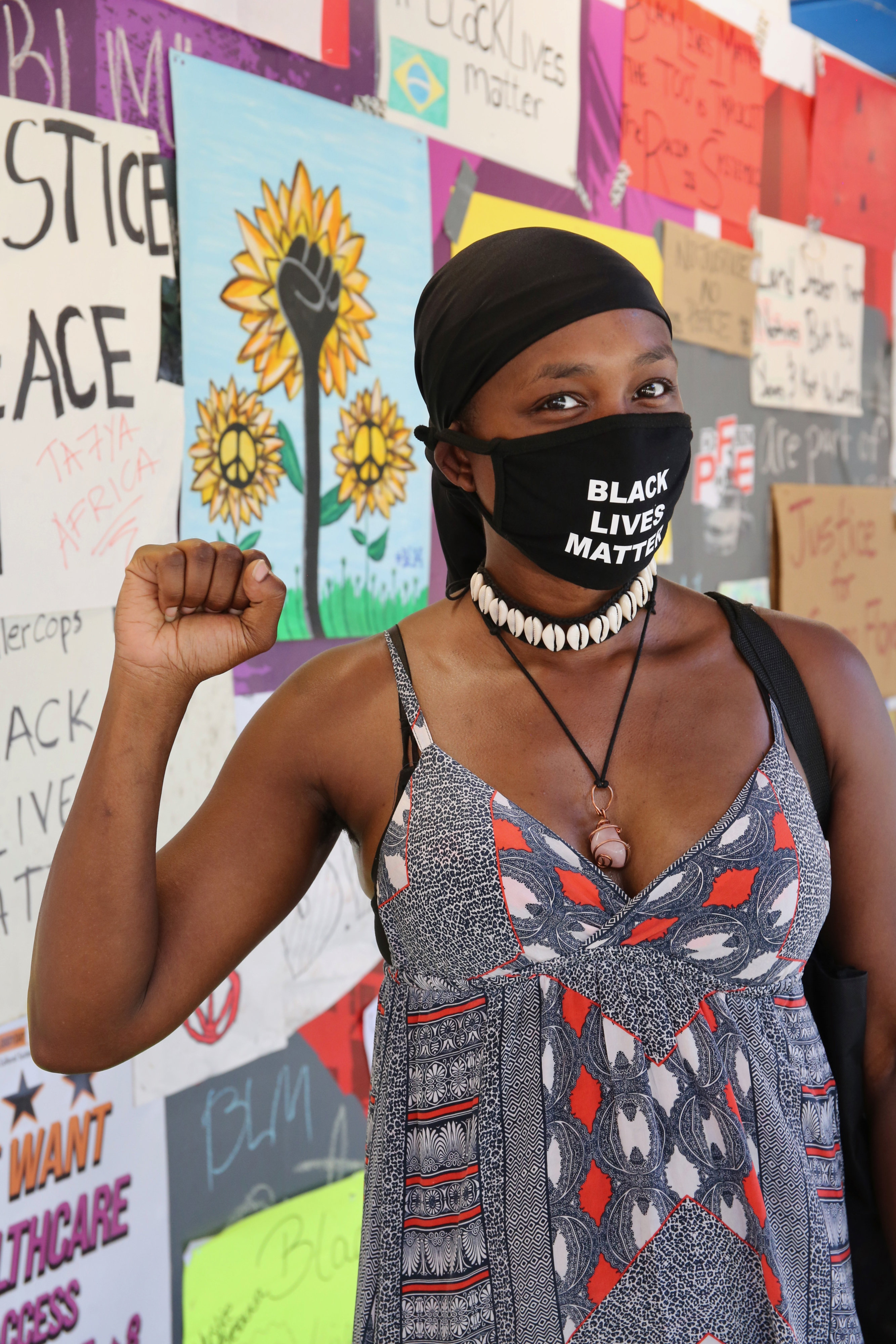
Saphan Pickett, Nutrition educator and farmer, 38
“I wanted to come to protest but I had to work and I felt life was separating me from this historic moment. It’s calm and peaceful now and I can still feel the energy and I know it’s not over. At a certain point you have to choose. Both corona and systemic oppression are a risk to our health and safety.”
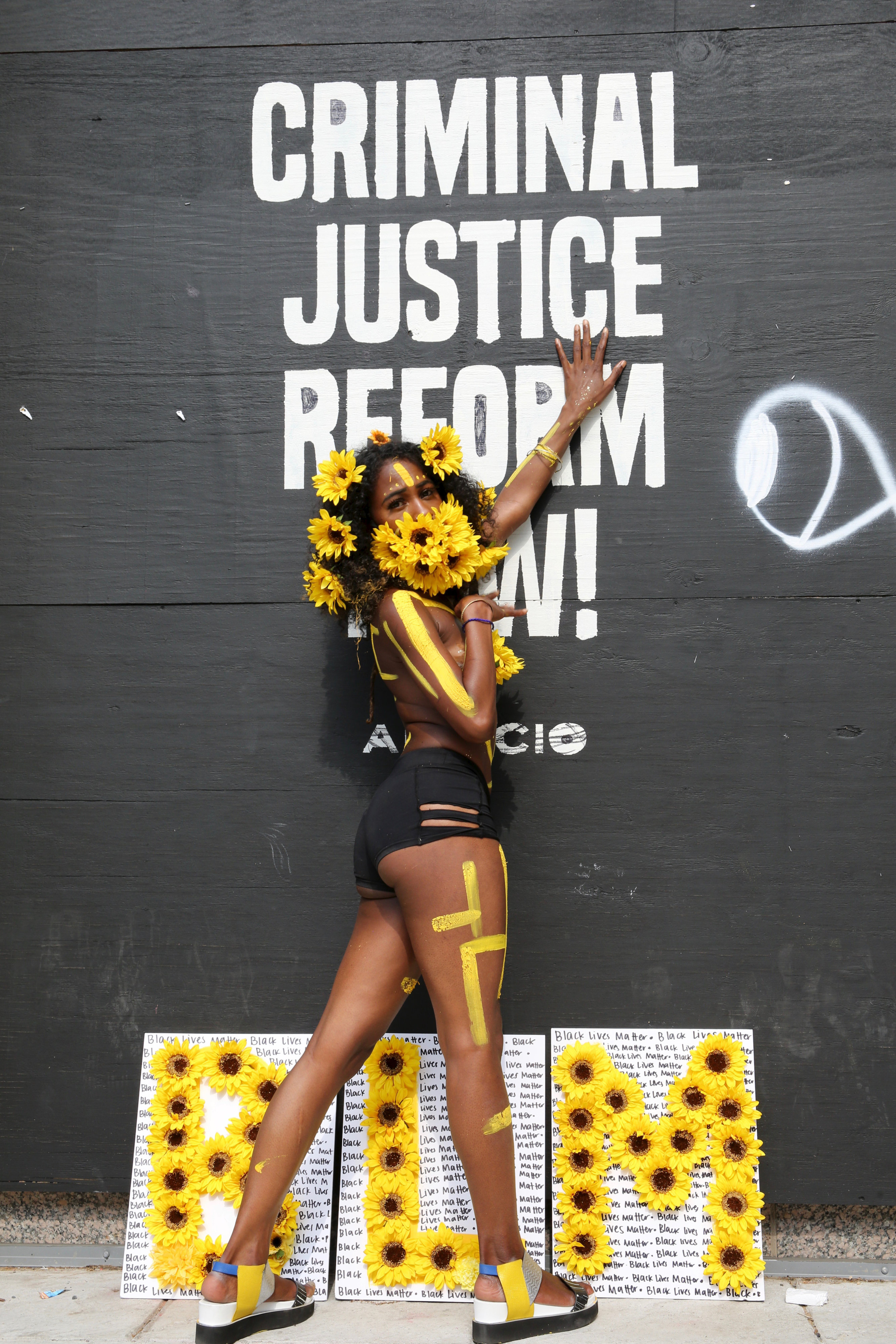
Sekayi Fernandes, performer
“I am happy to see people standing up and using their voices and their bodies to bring change and to put action behind worlds. On the other hand, the momentum has died down and it’s become commercialized rather than based on improving the lives of black and brown people. I want to go back to the revolution.”
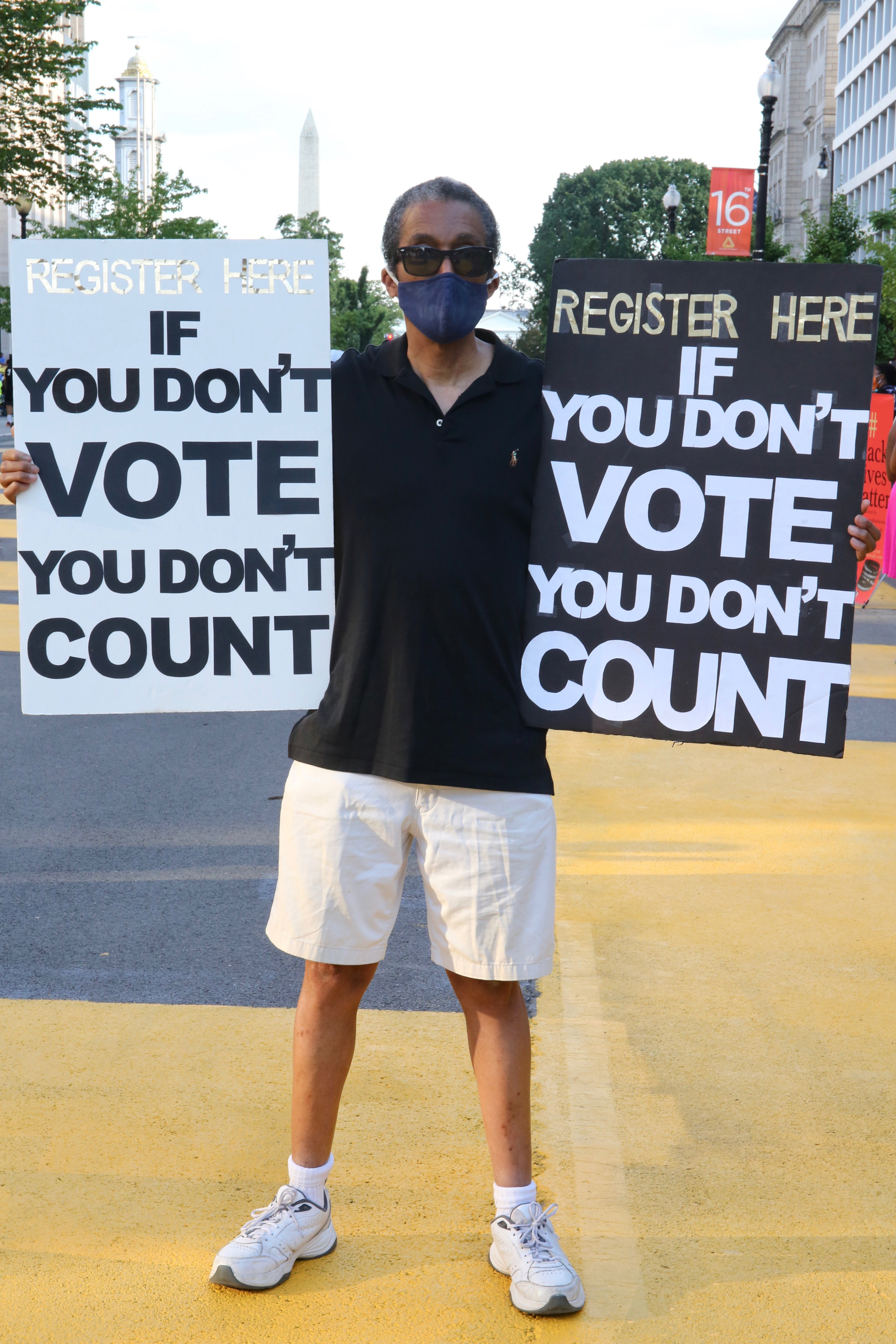
Bradley Thomas, 66
“I’ve been involved in protests and marches since my twenties.”
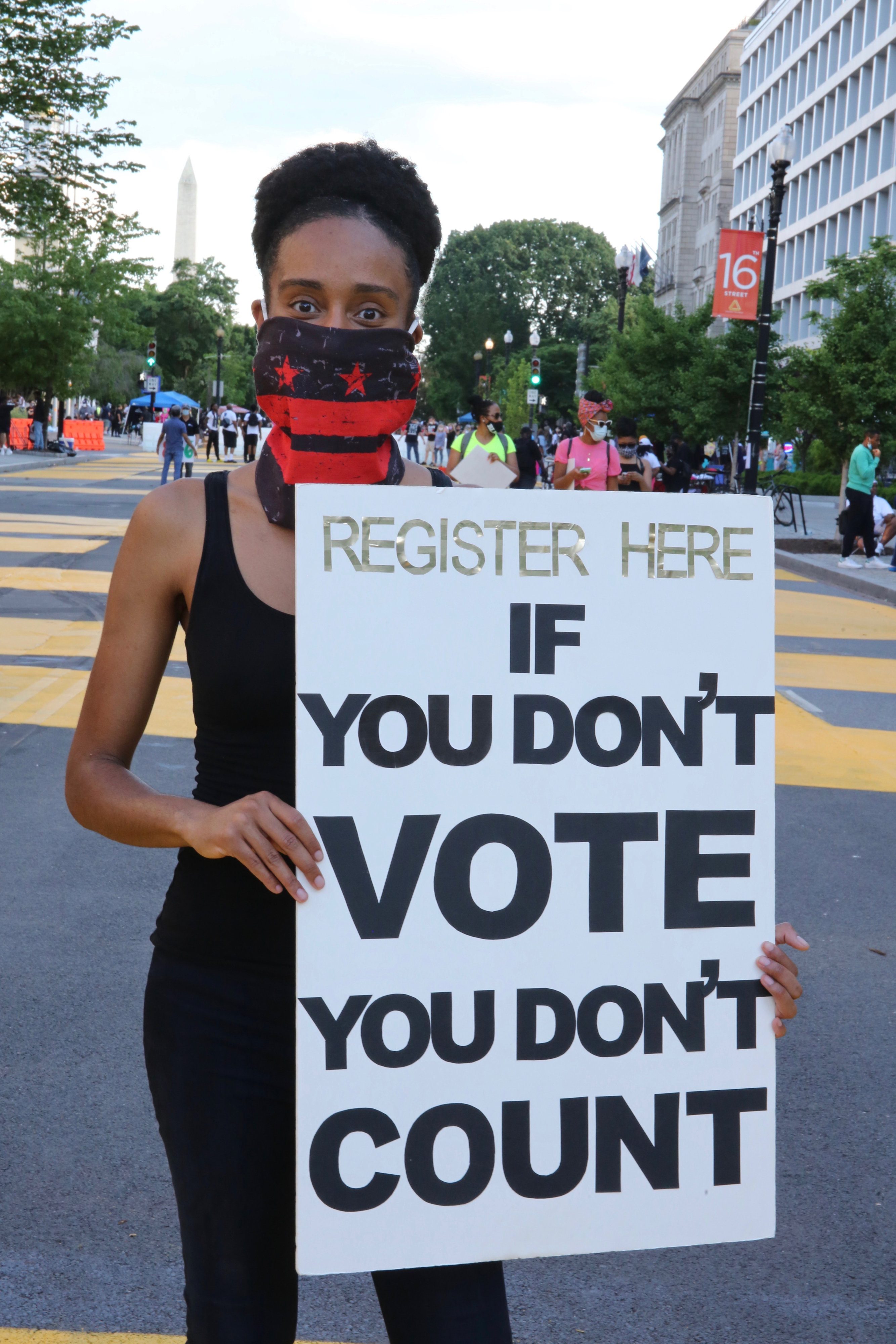
Krysten Thomas, Georgetown law student, DNC delegate for DC, 28
“My dad used to bring me when I was young. It has now come full circle.”
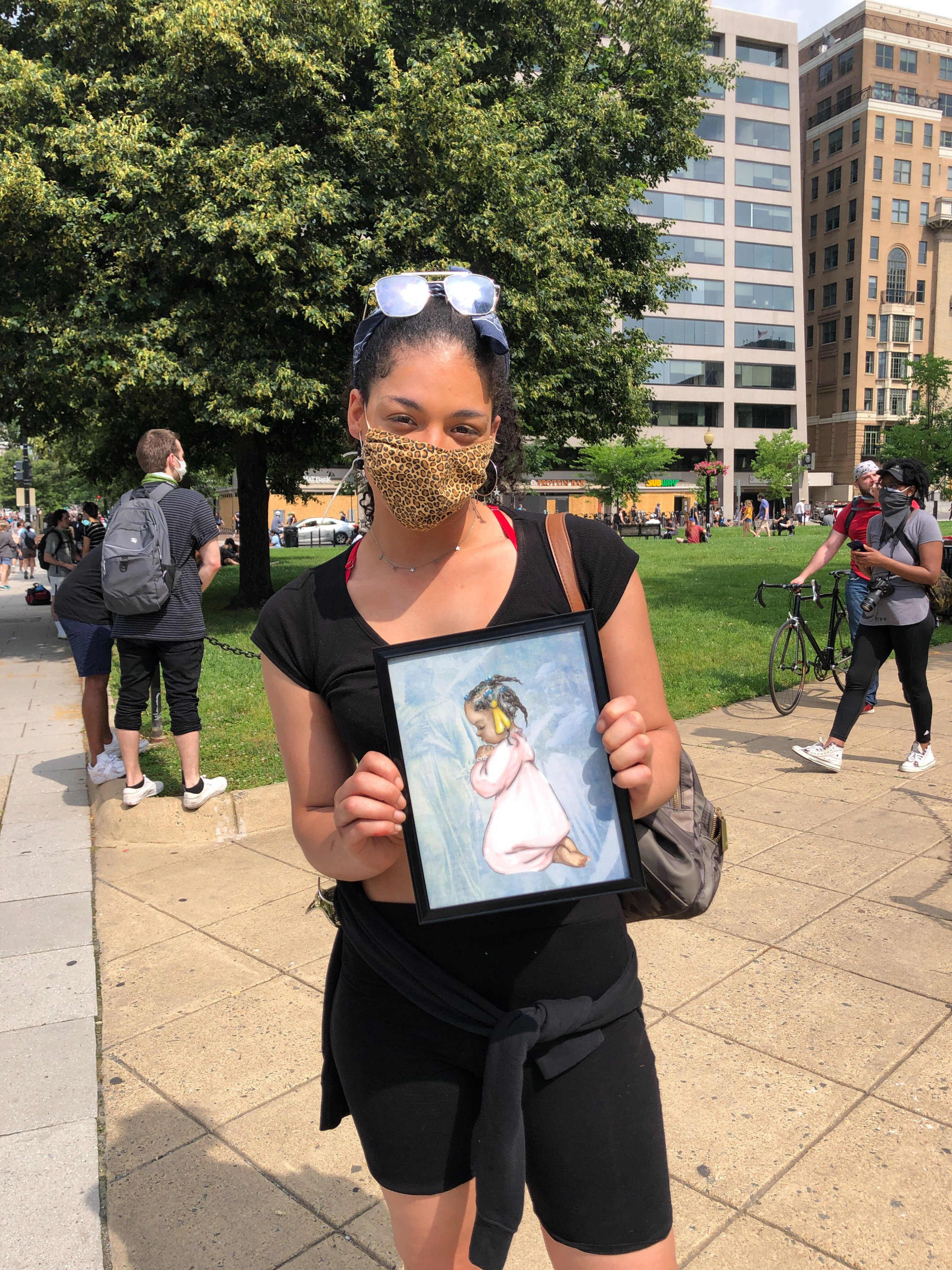
Jordan Glaze, 21, Student at George Mason
“We’re out here to let people see us, let people here us, and know that we matter…If you’ve never faced oppression and if you’ve never faced racism personally, then you should be speaking up for the people that have faced oppression and have faced racism. Because I have both a white and a black family and it is a tail of two cities. I have one family that feels one way about something and another family that feels completely opposite. So we’re out here just to make some change. It sucks that we can’t pass a bill right away or we can’t go to legislation. Marching is the only option we have right now.”
Photographs of Pope, Meehan family, and Grady by Jane Recker
Photograph of Dorothy, Harvey/Hack, and Nwokeuku family by Marisa M. Kashino
Photograph of Glaze by Michael Schaffer

